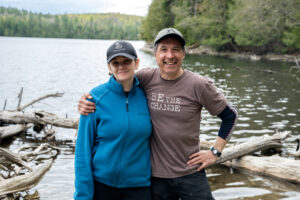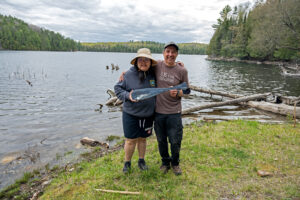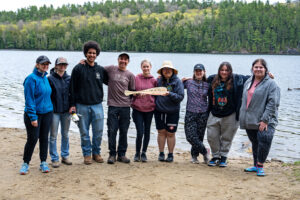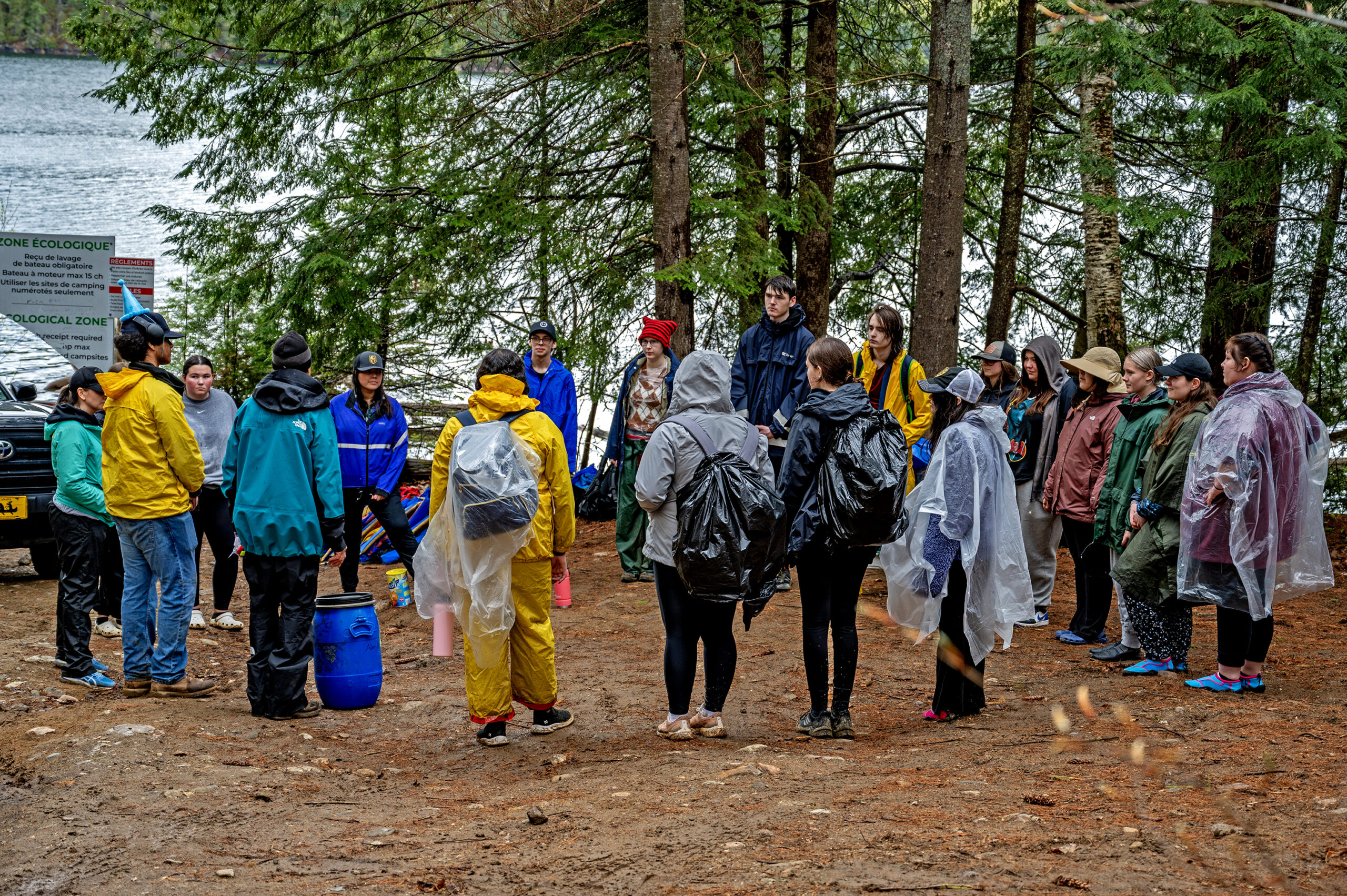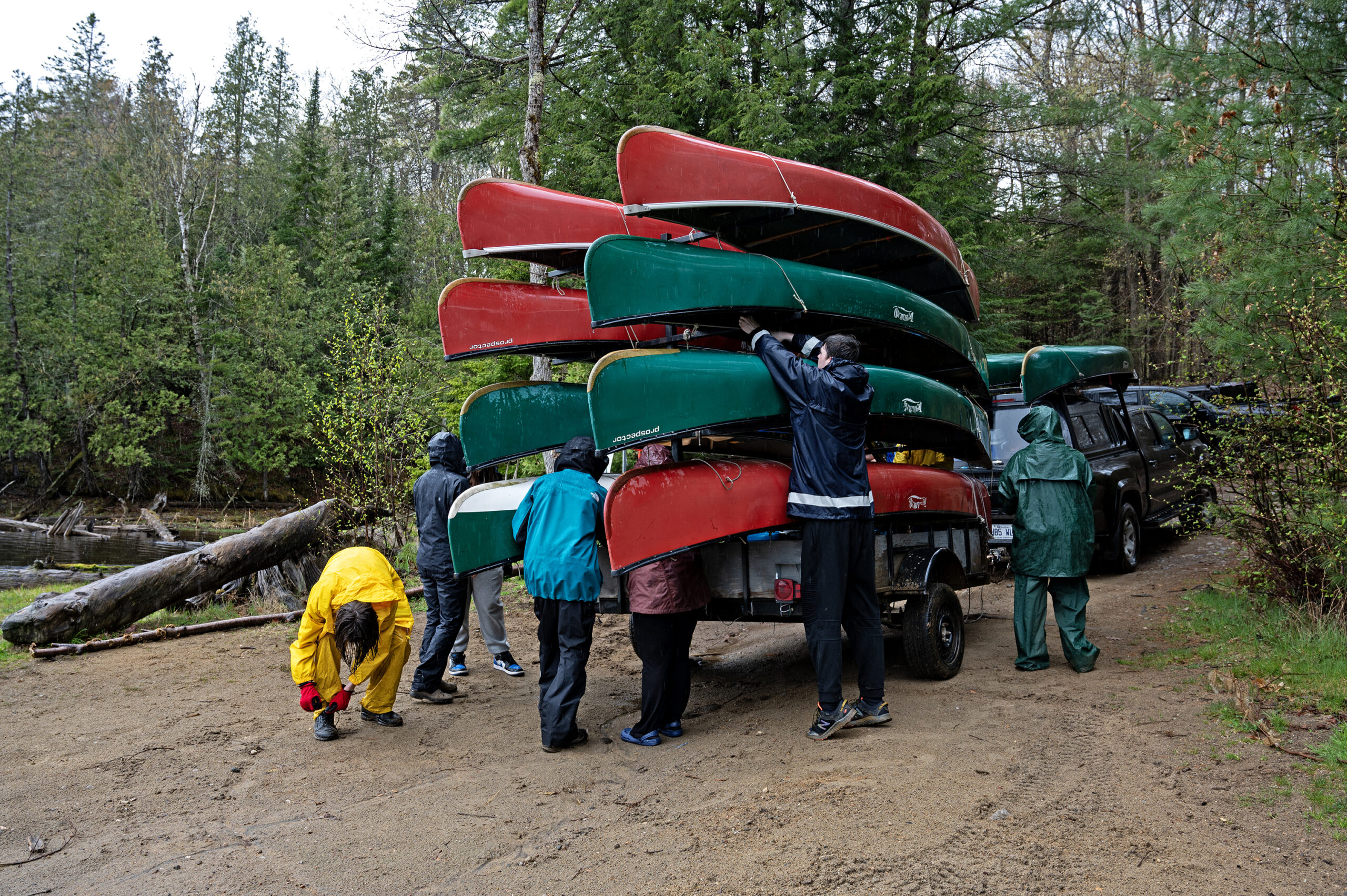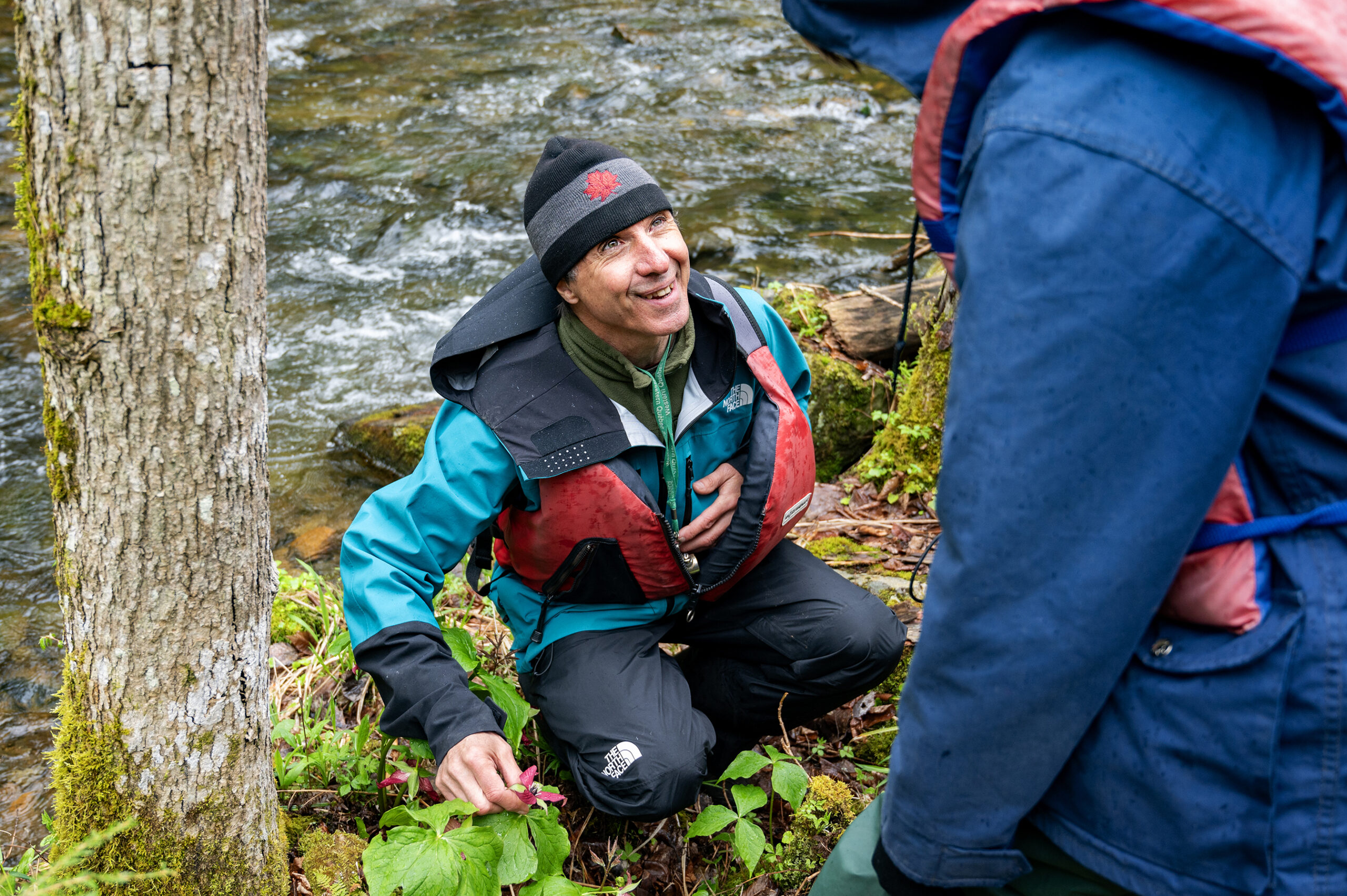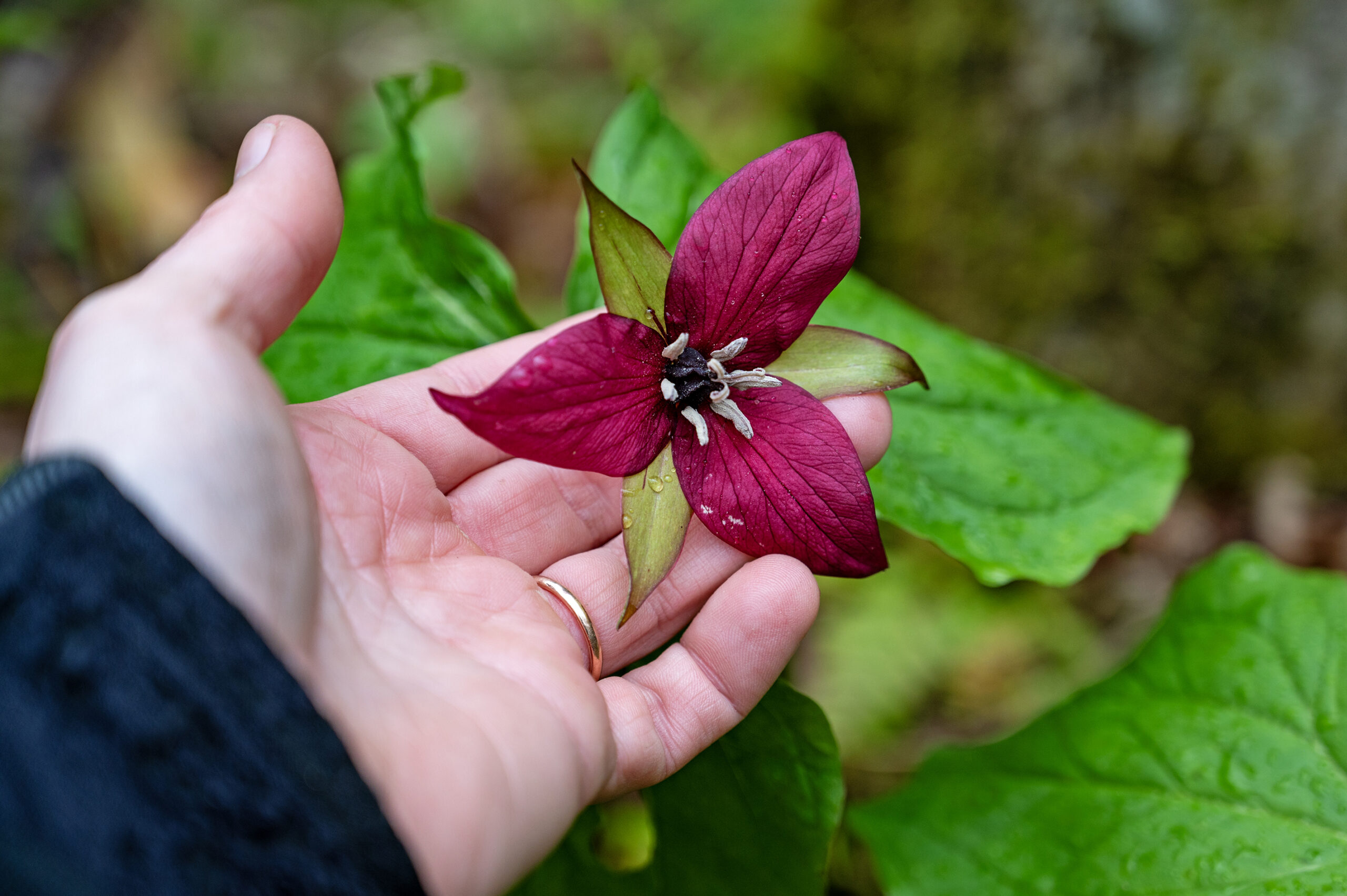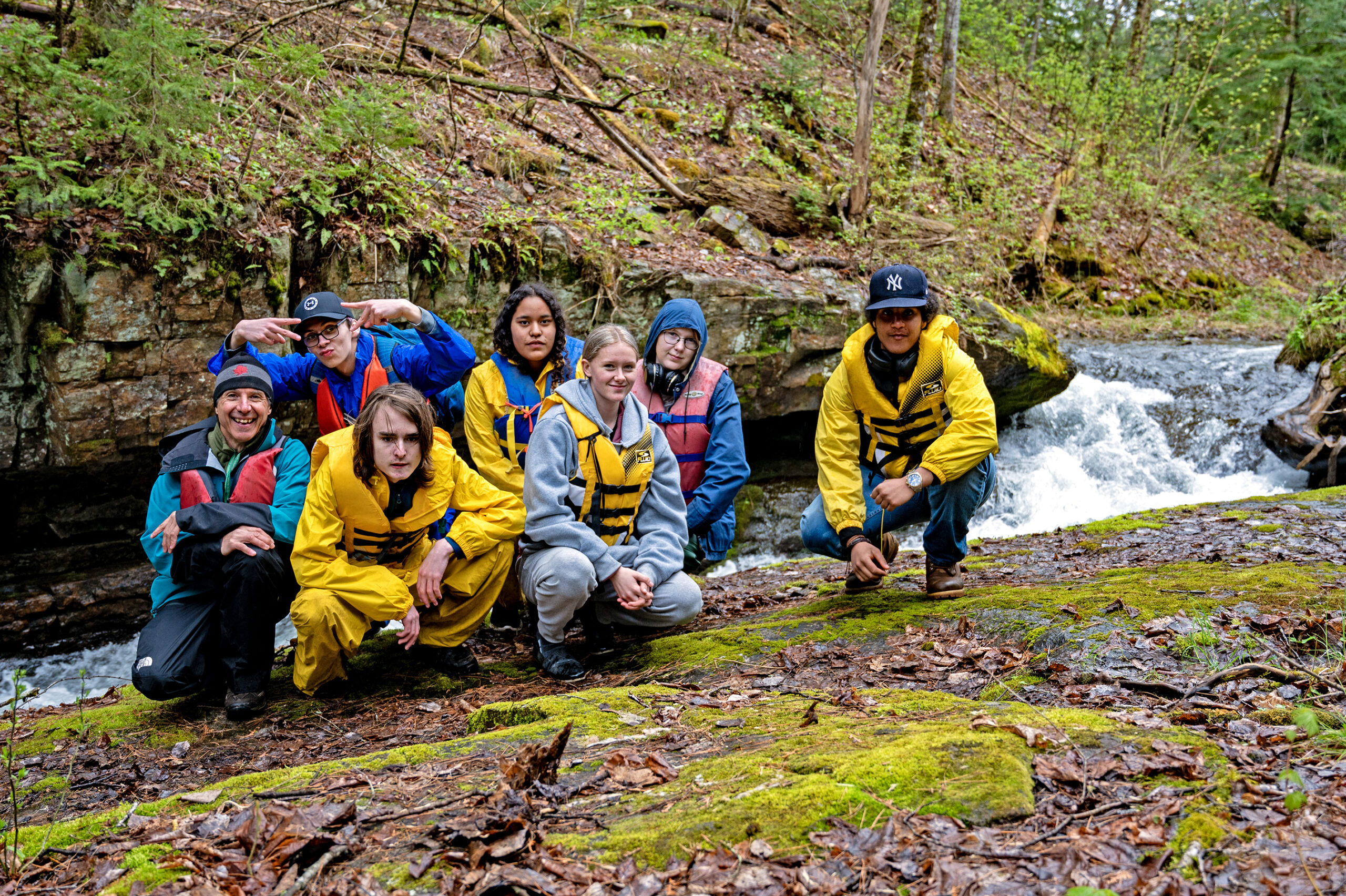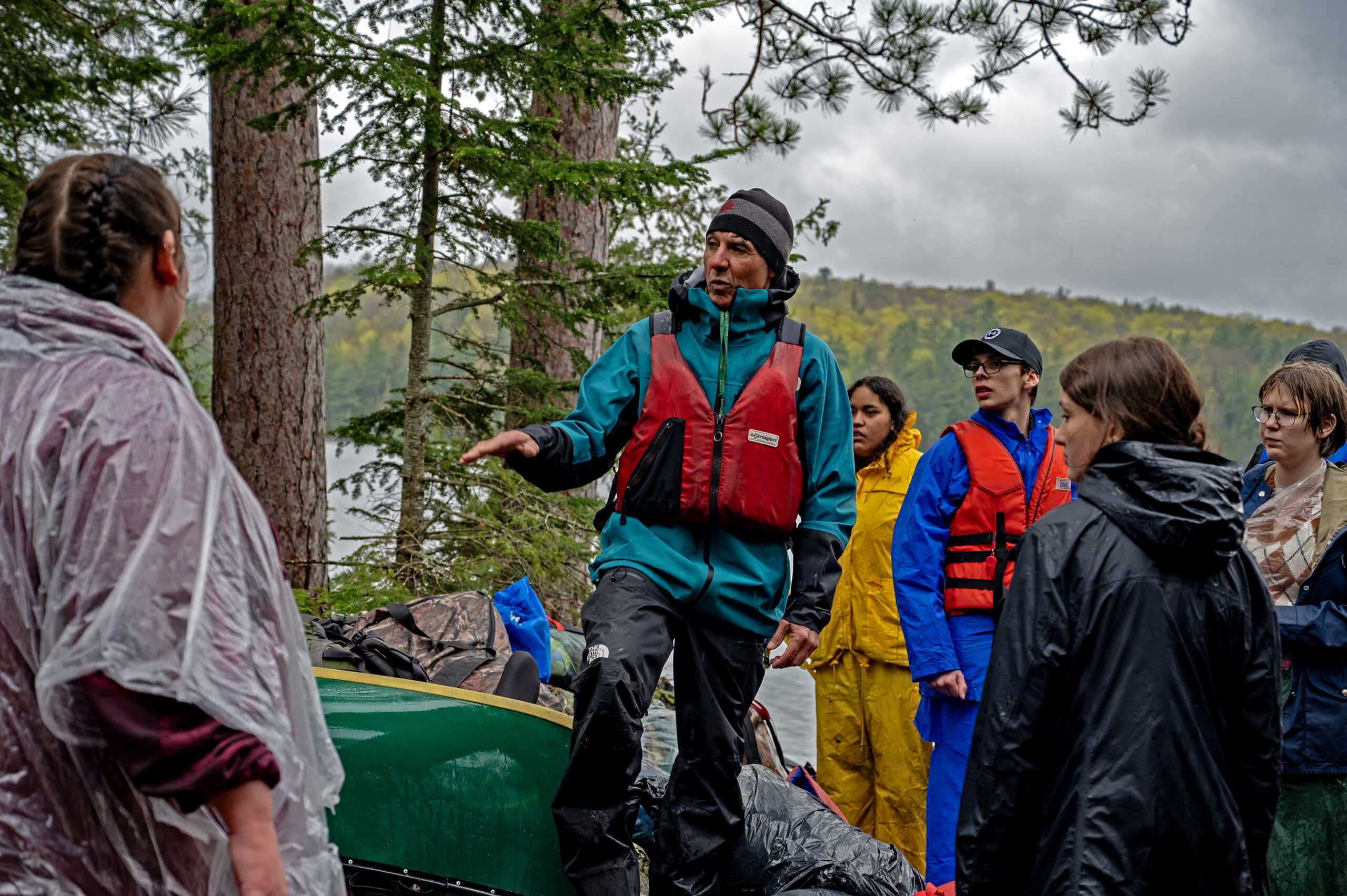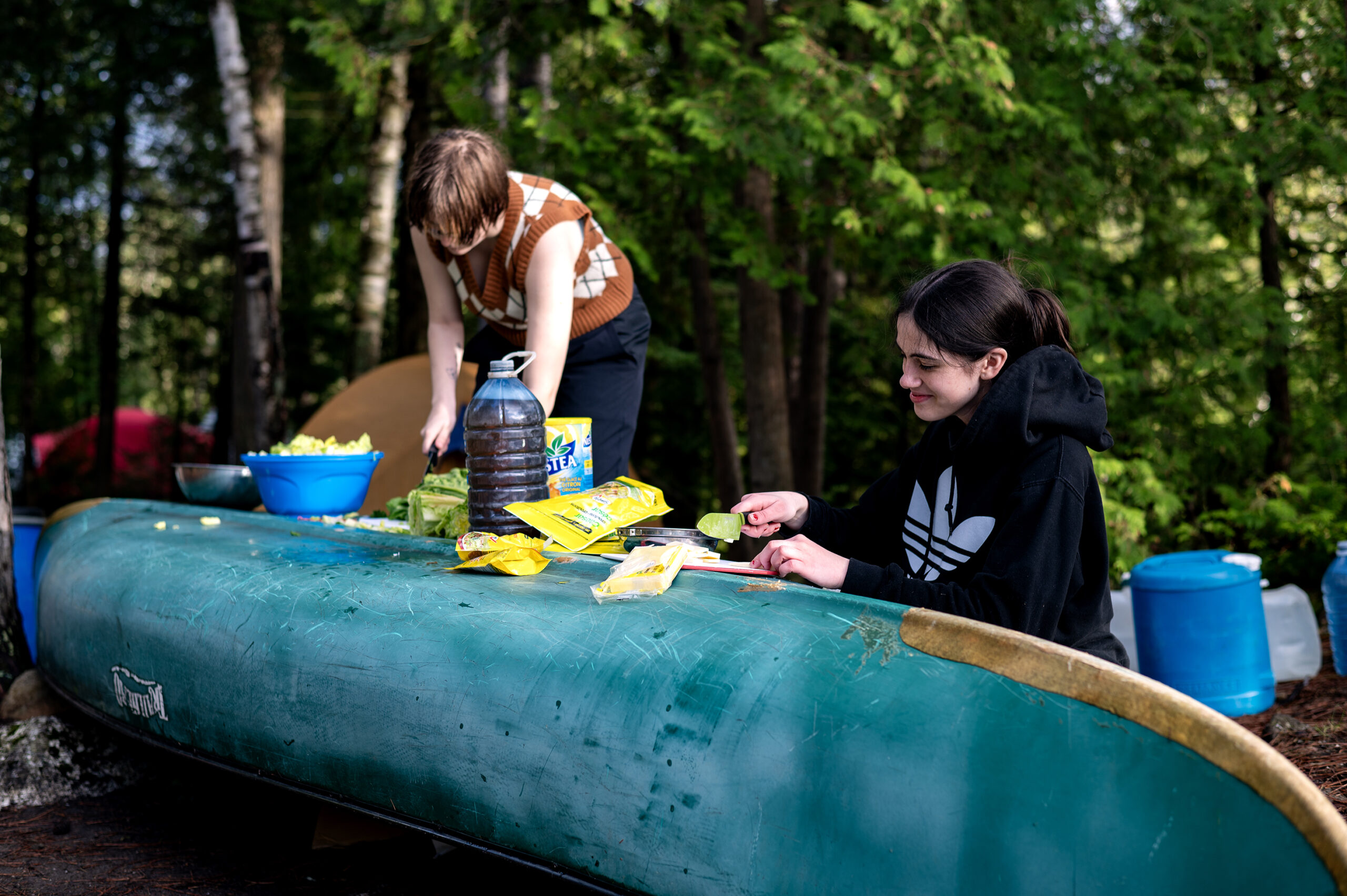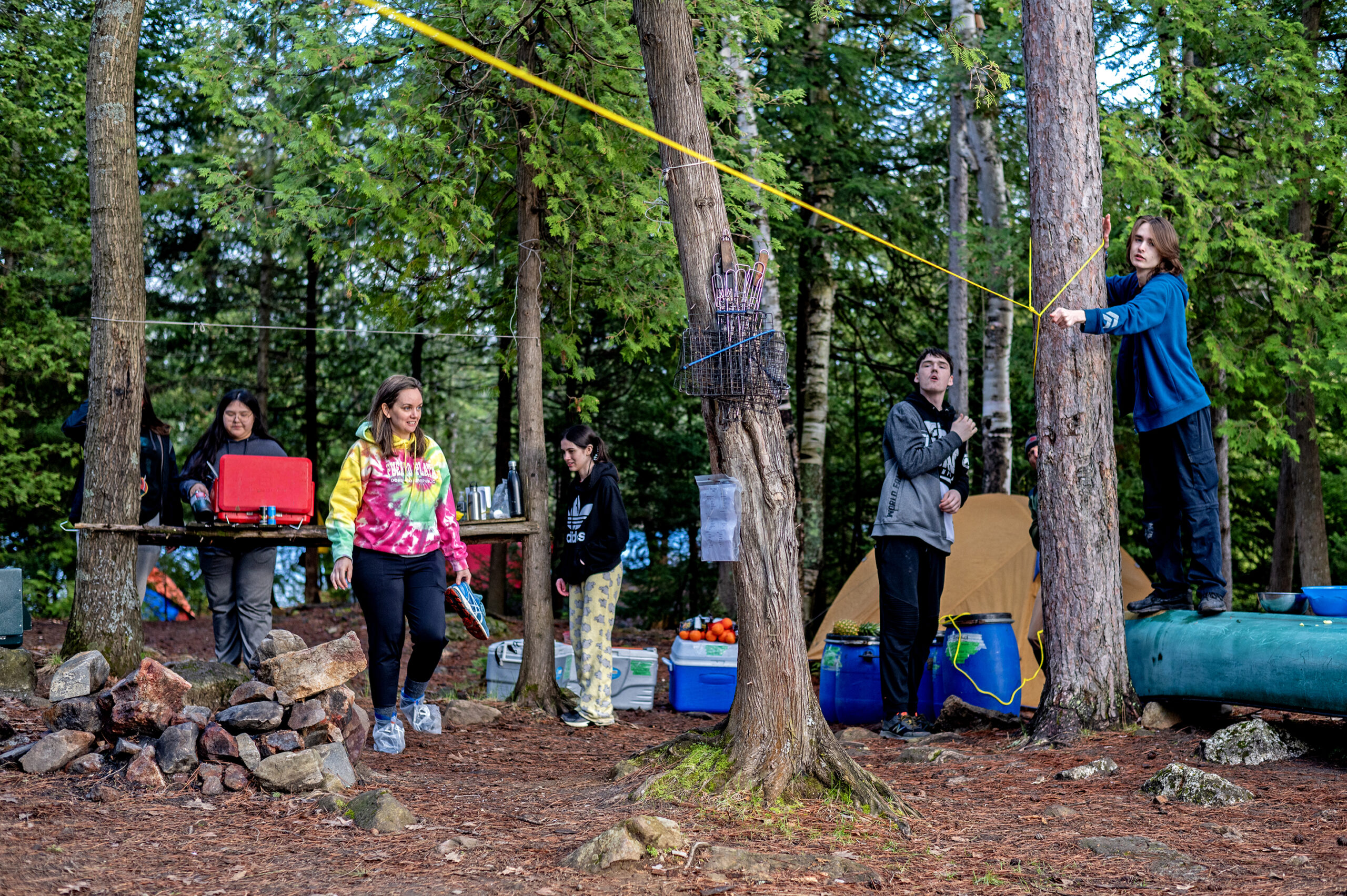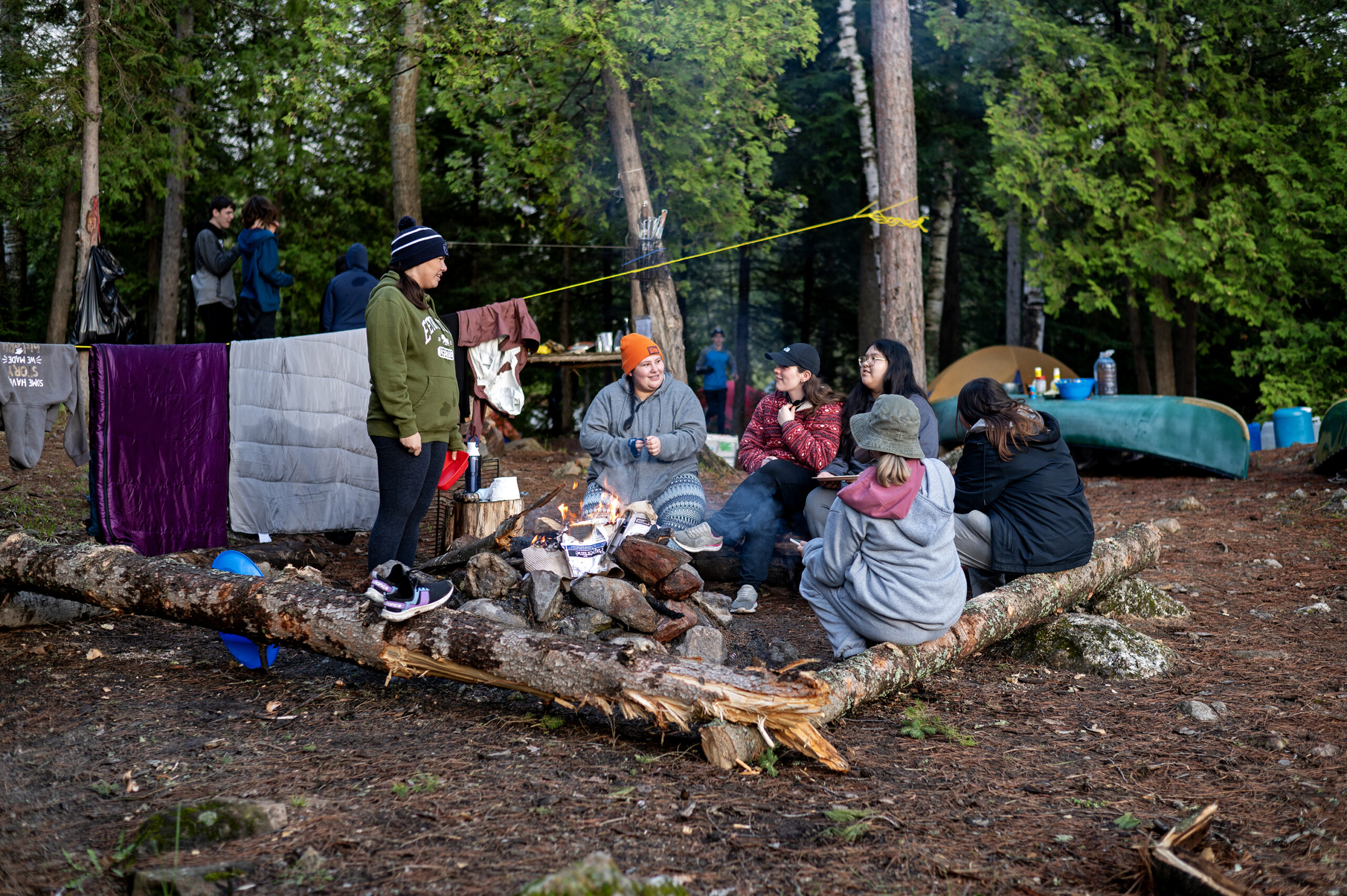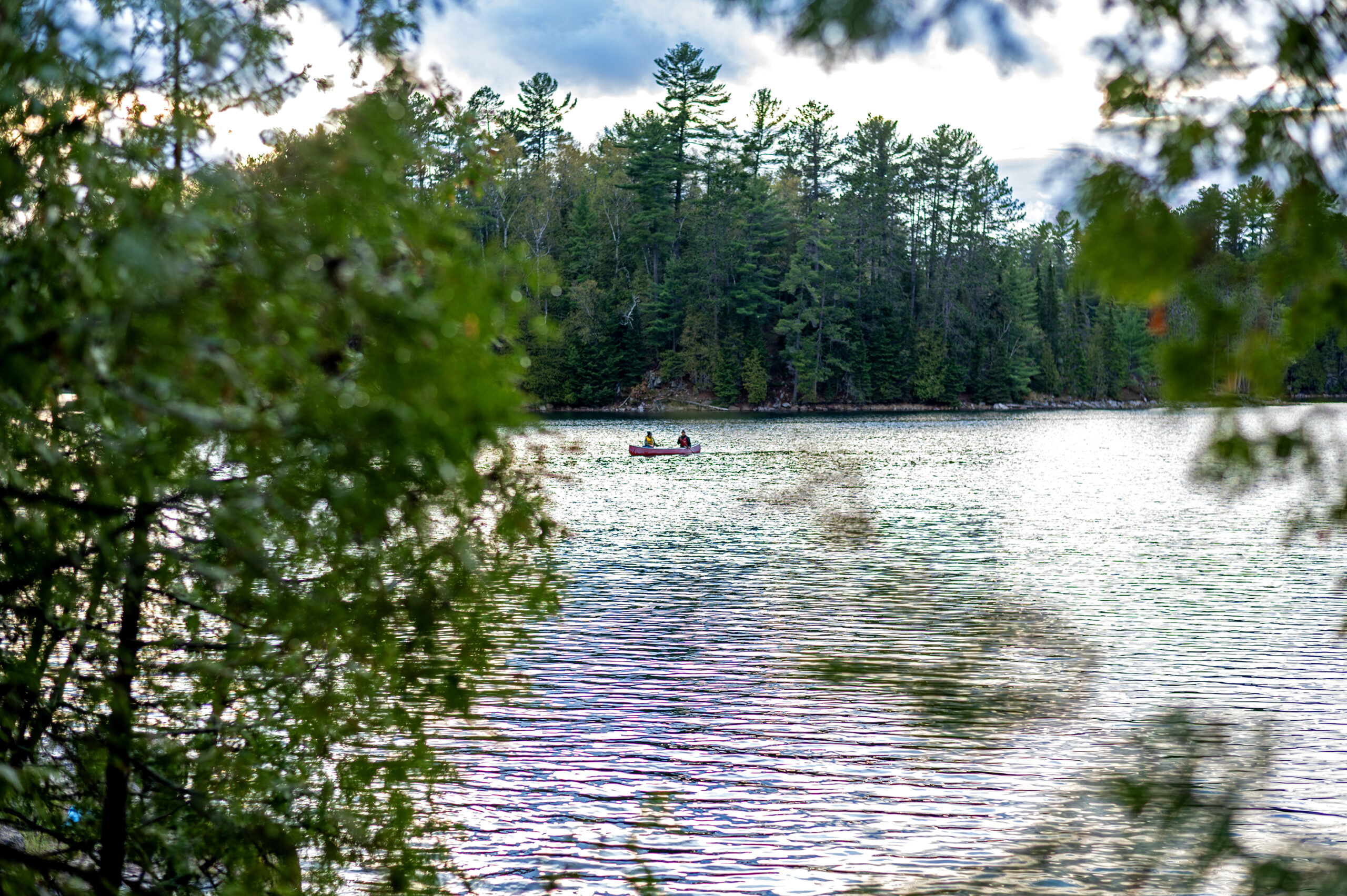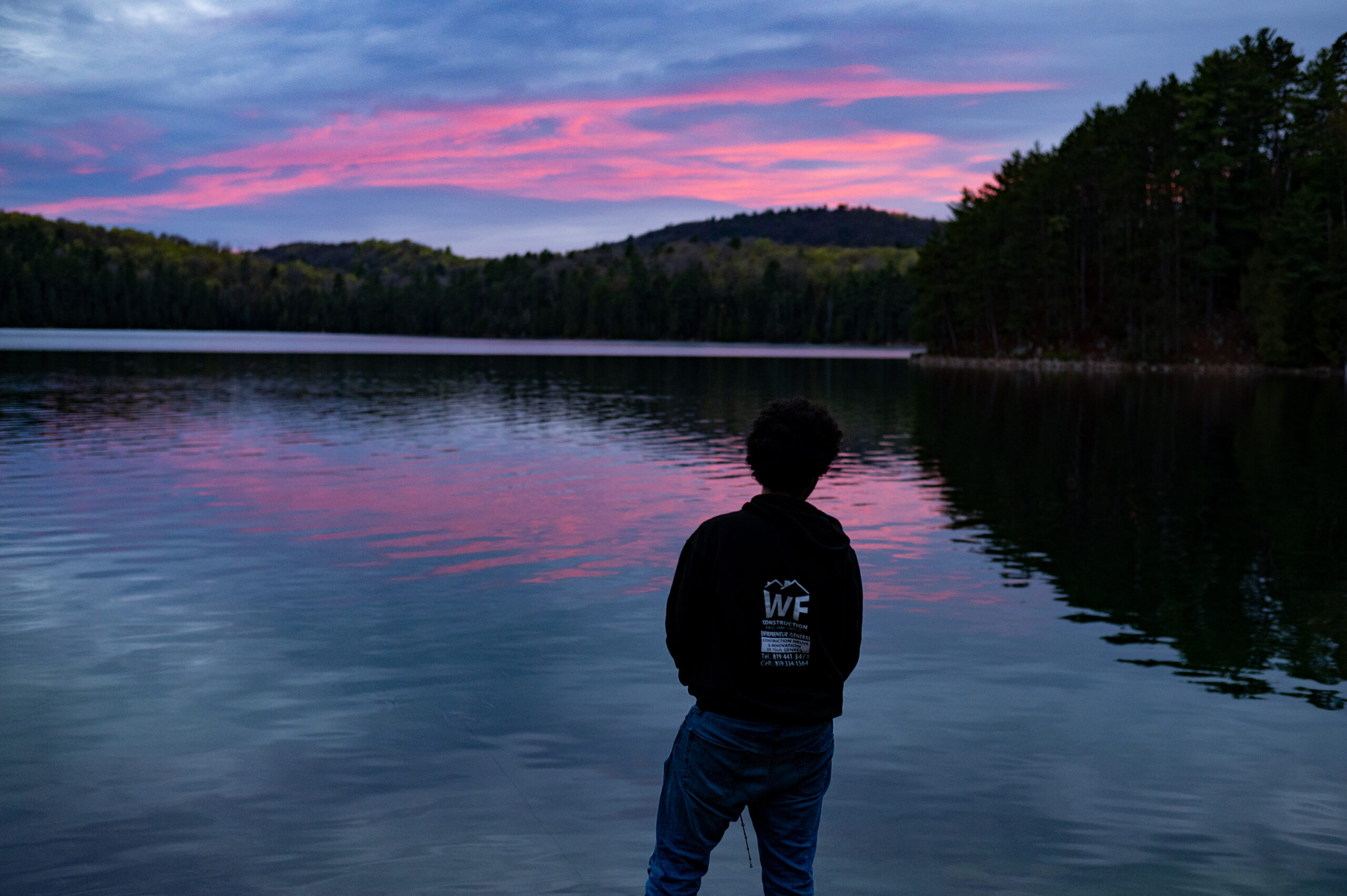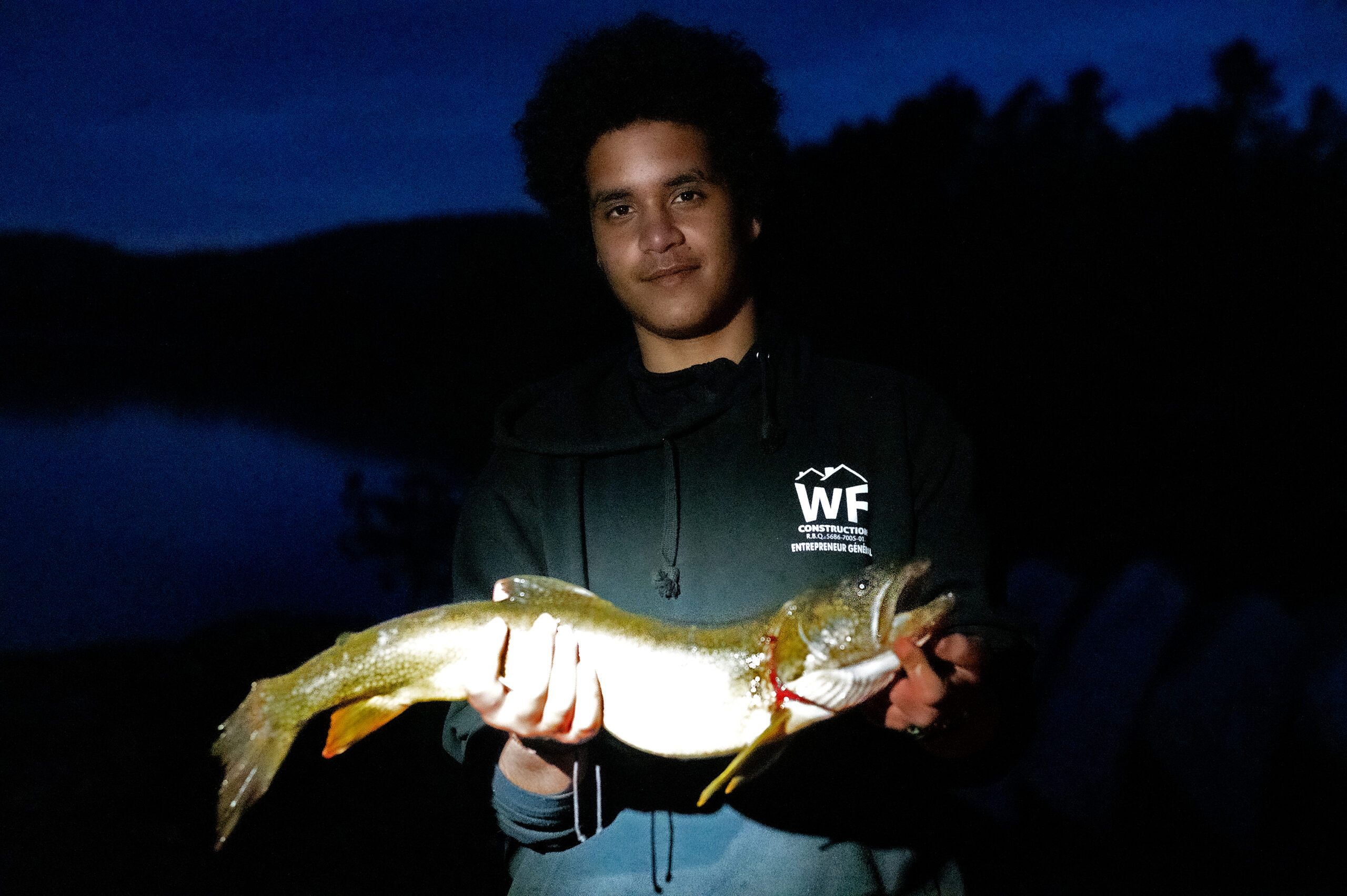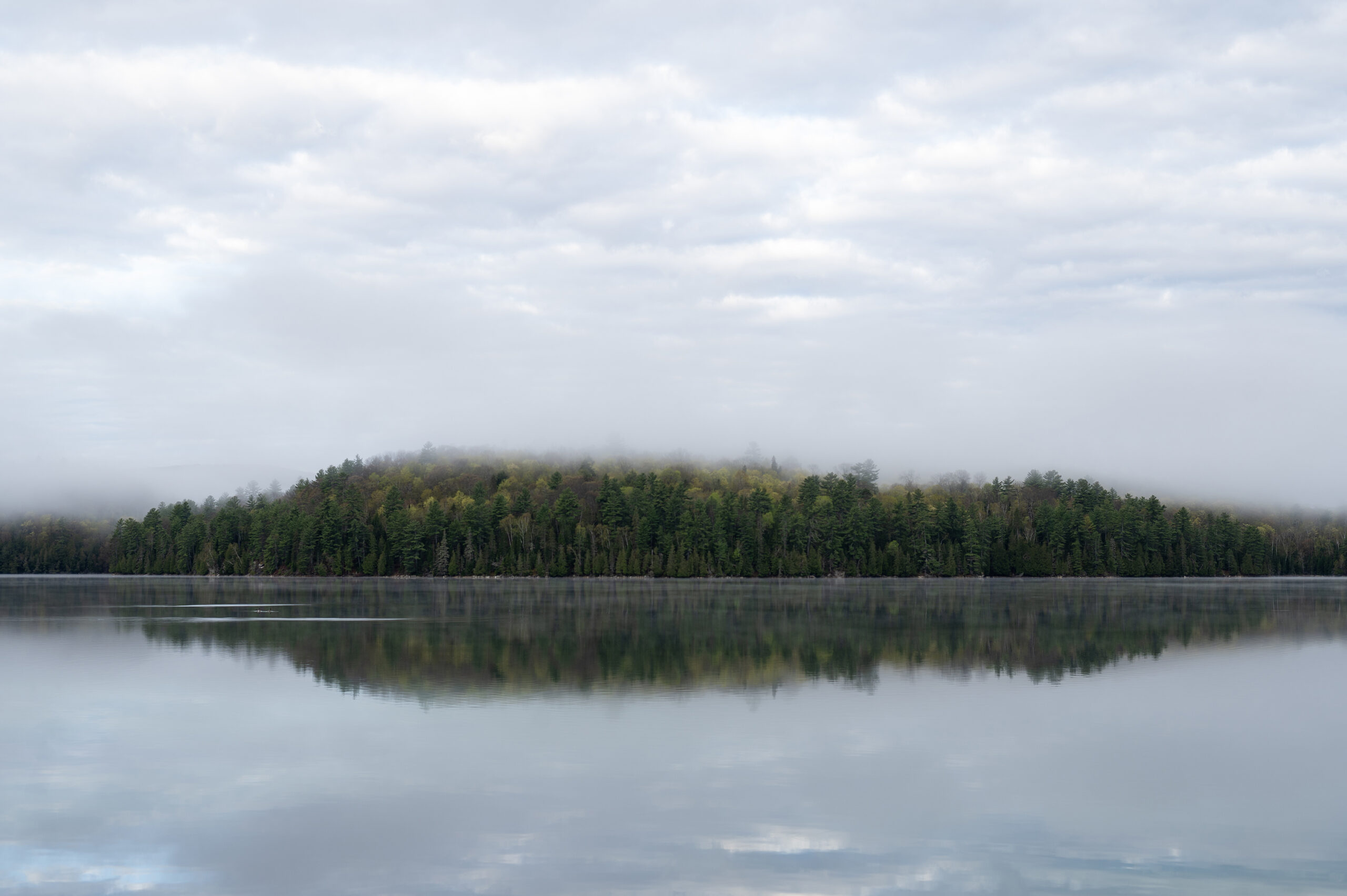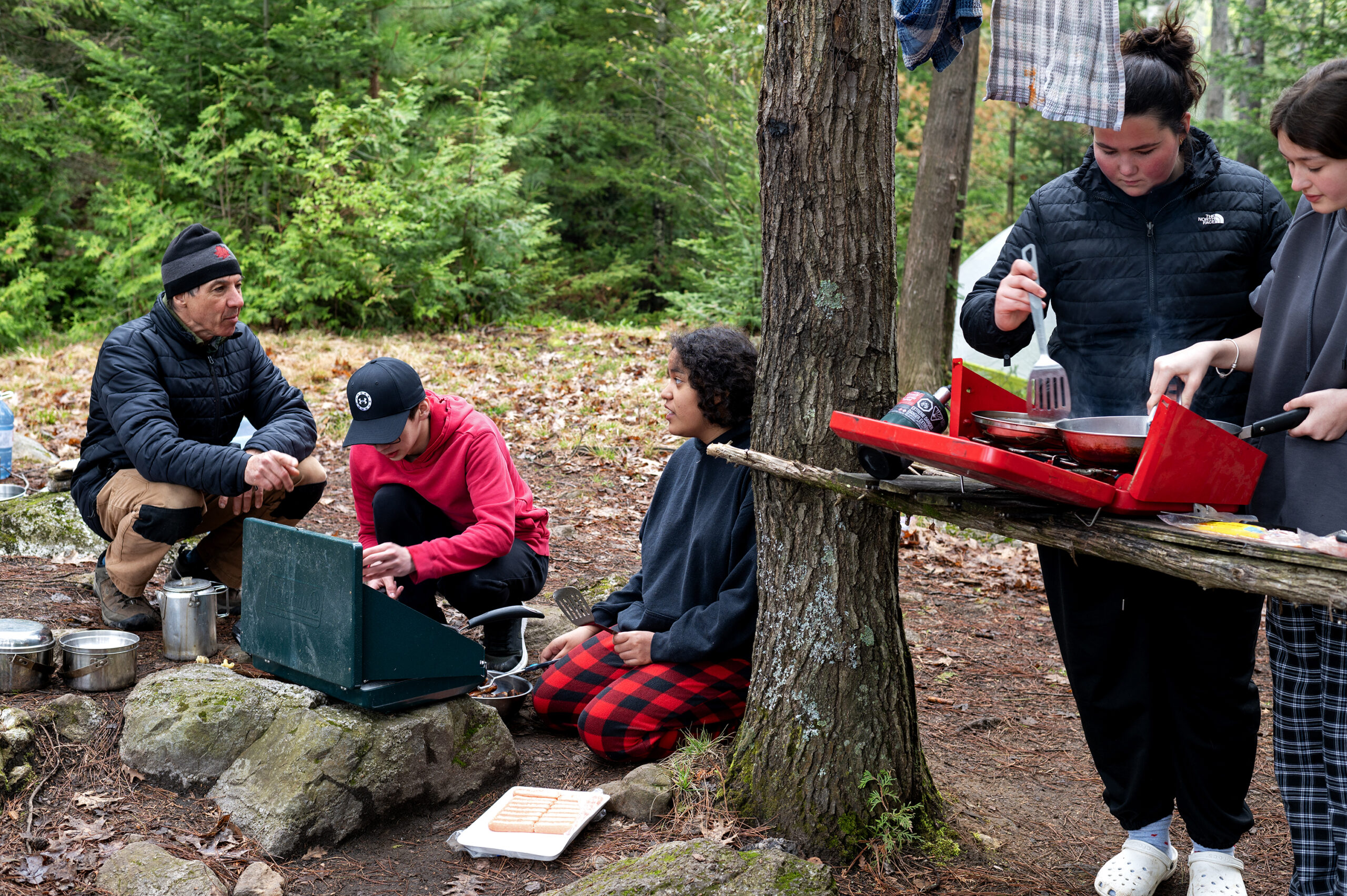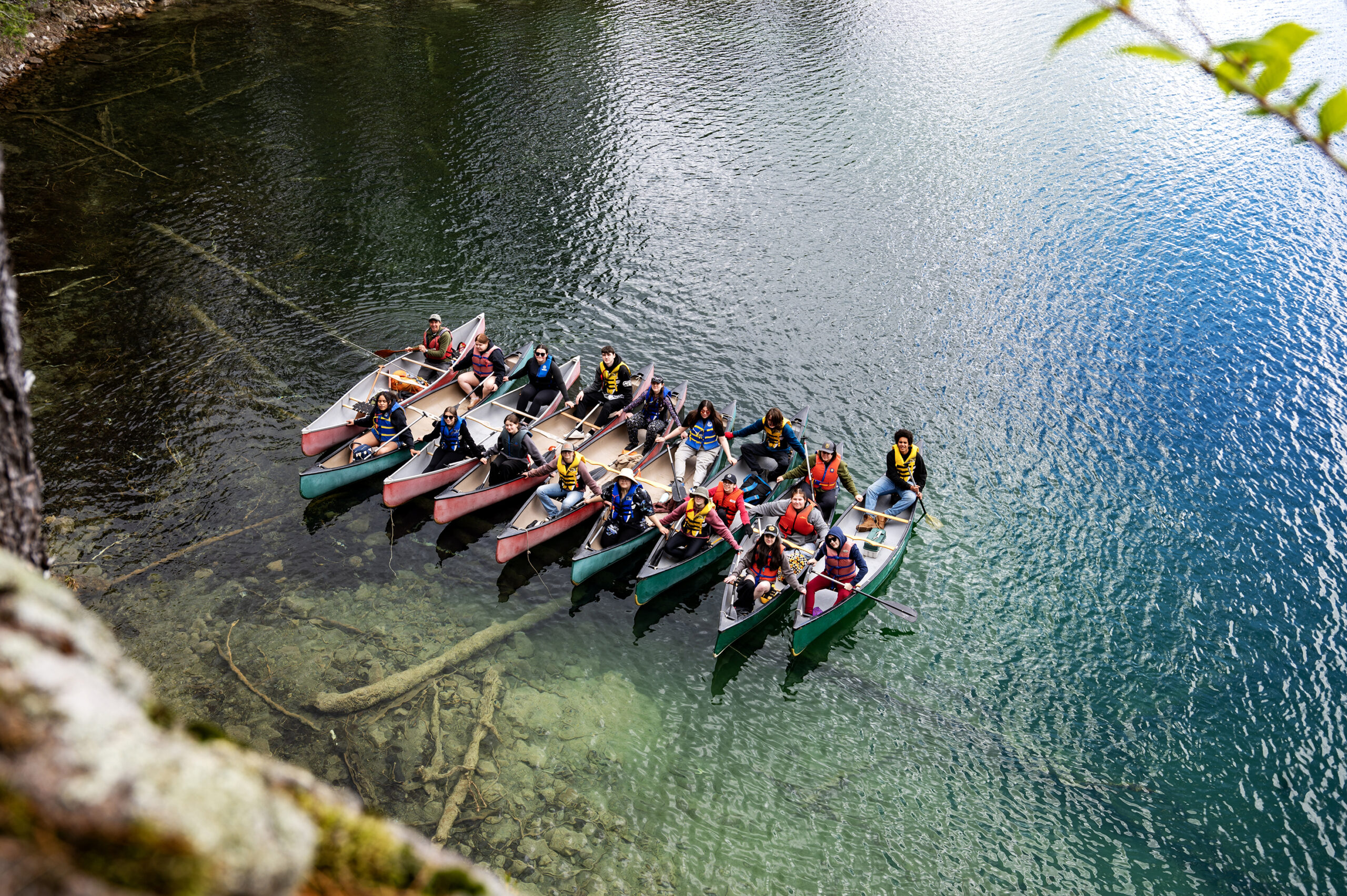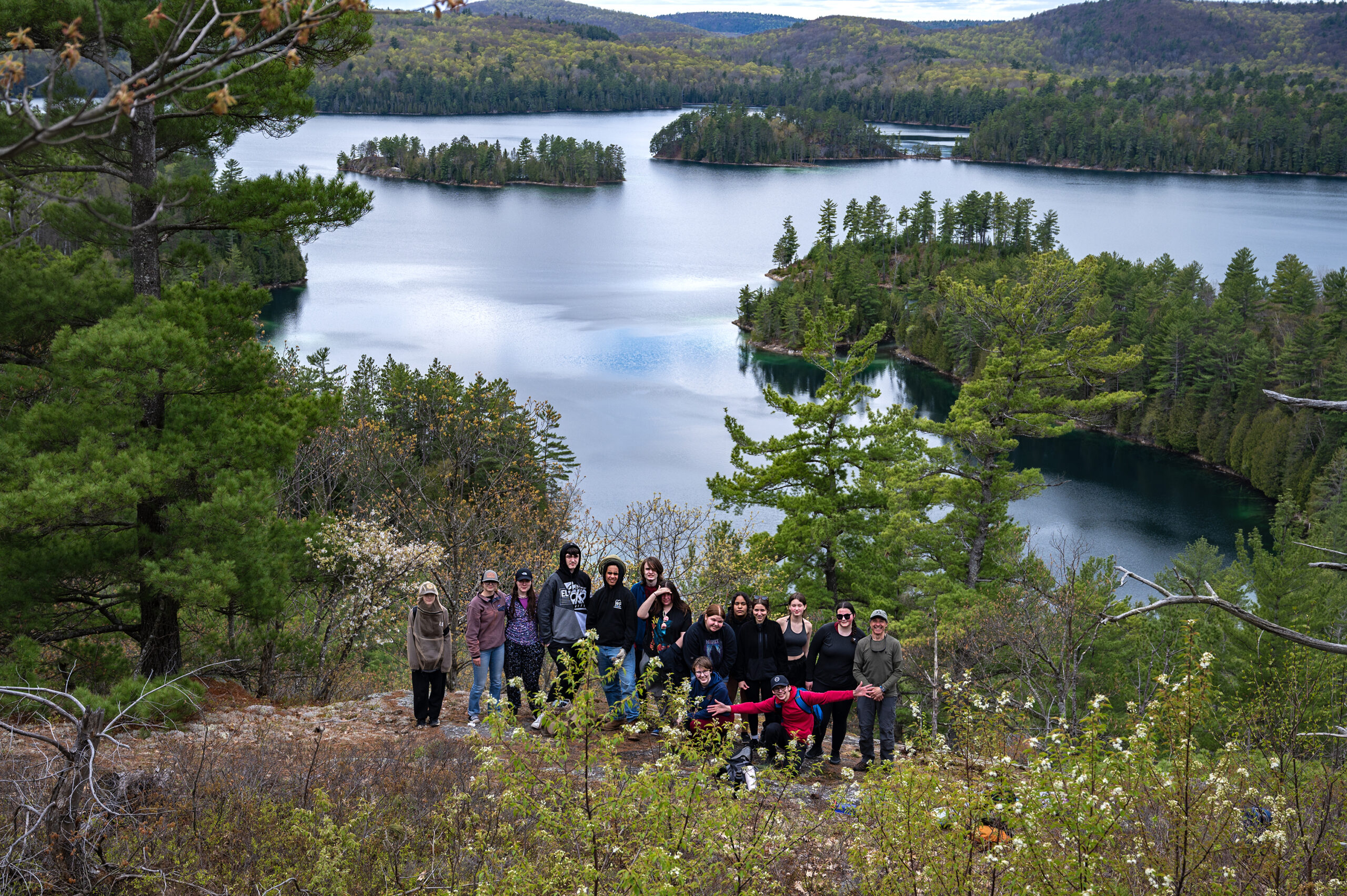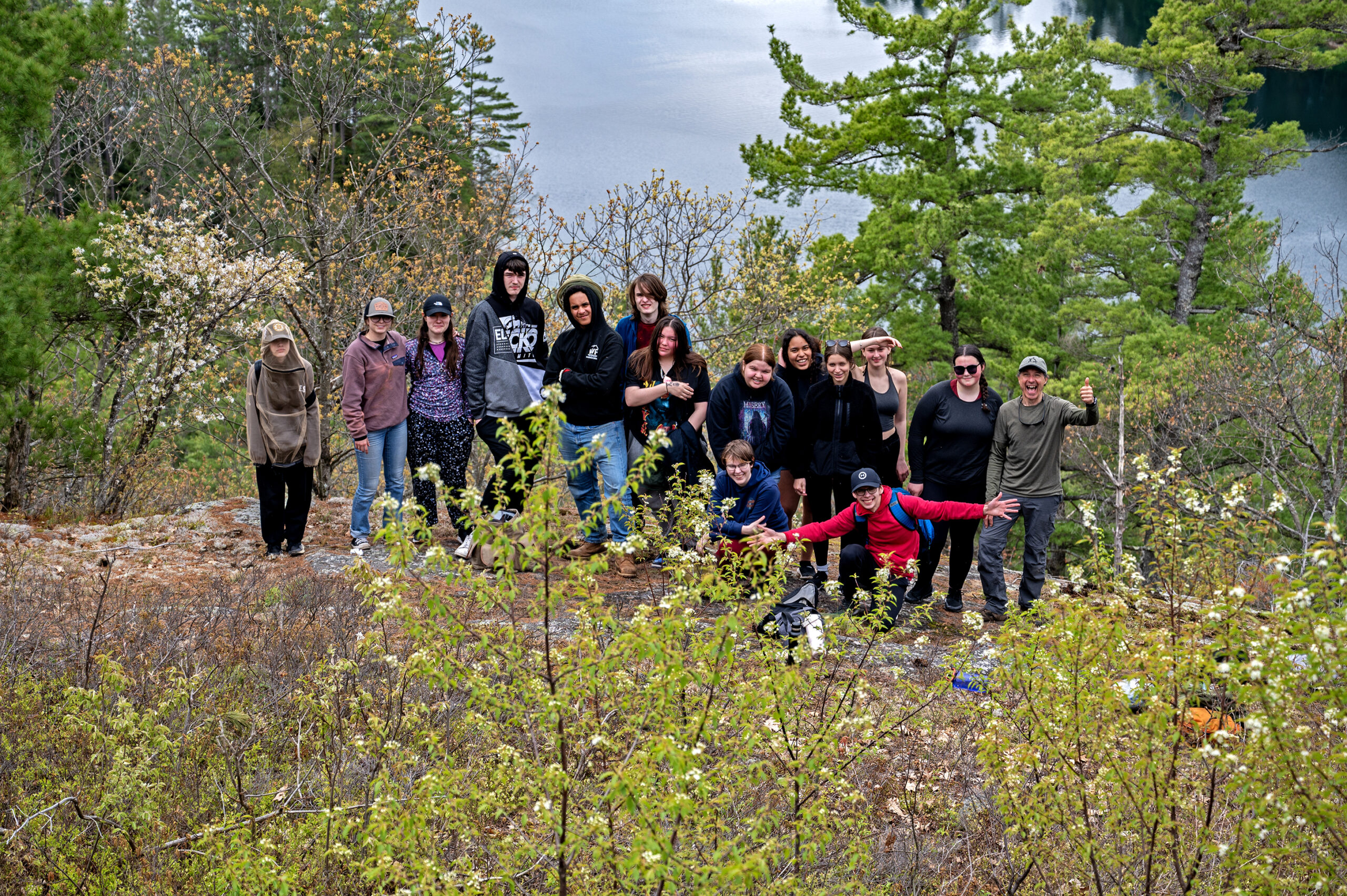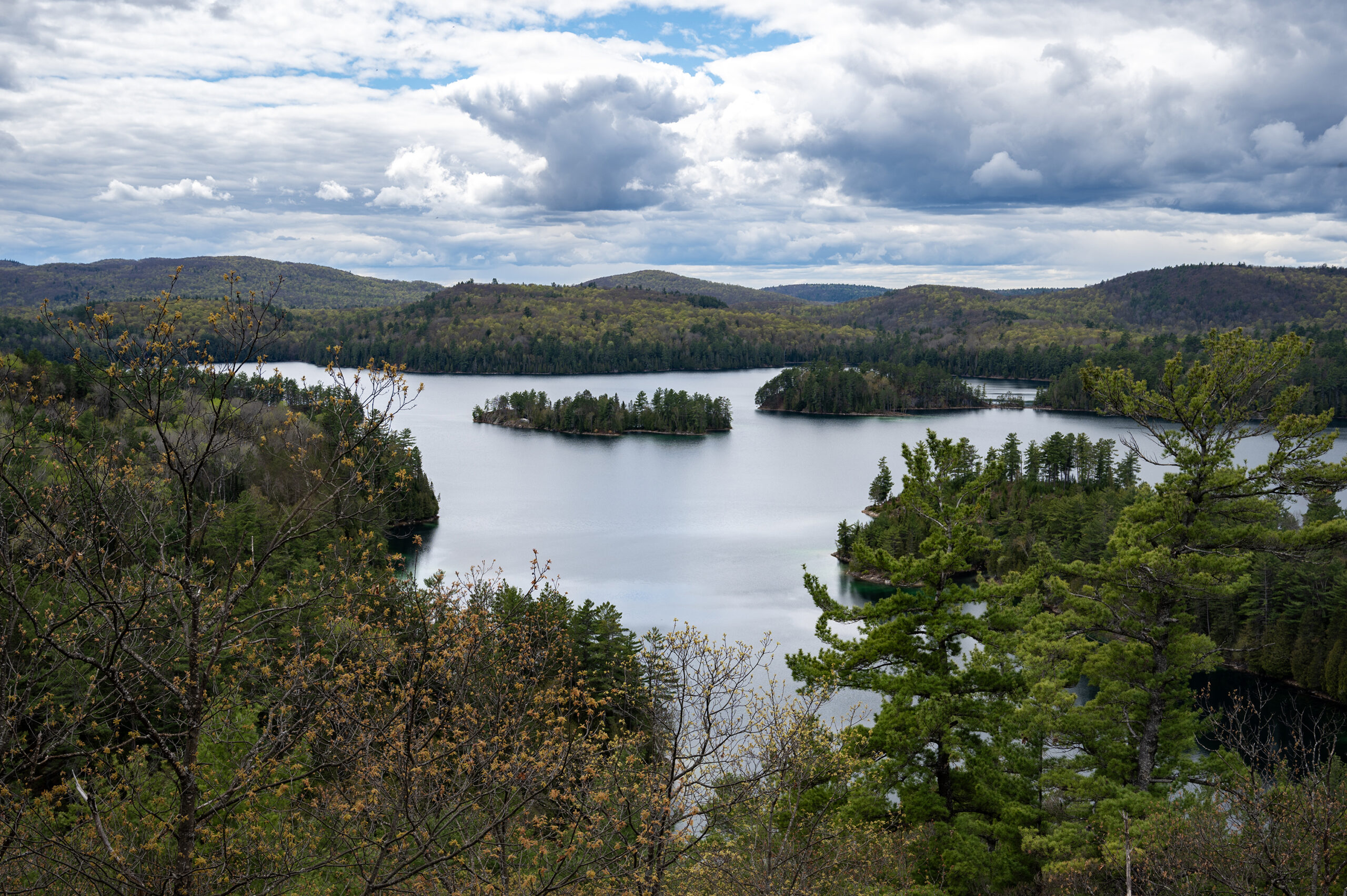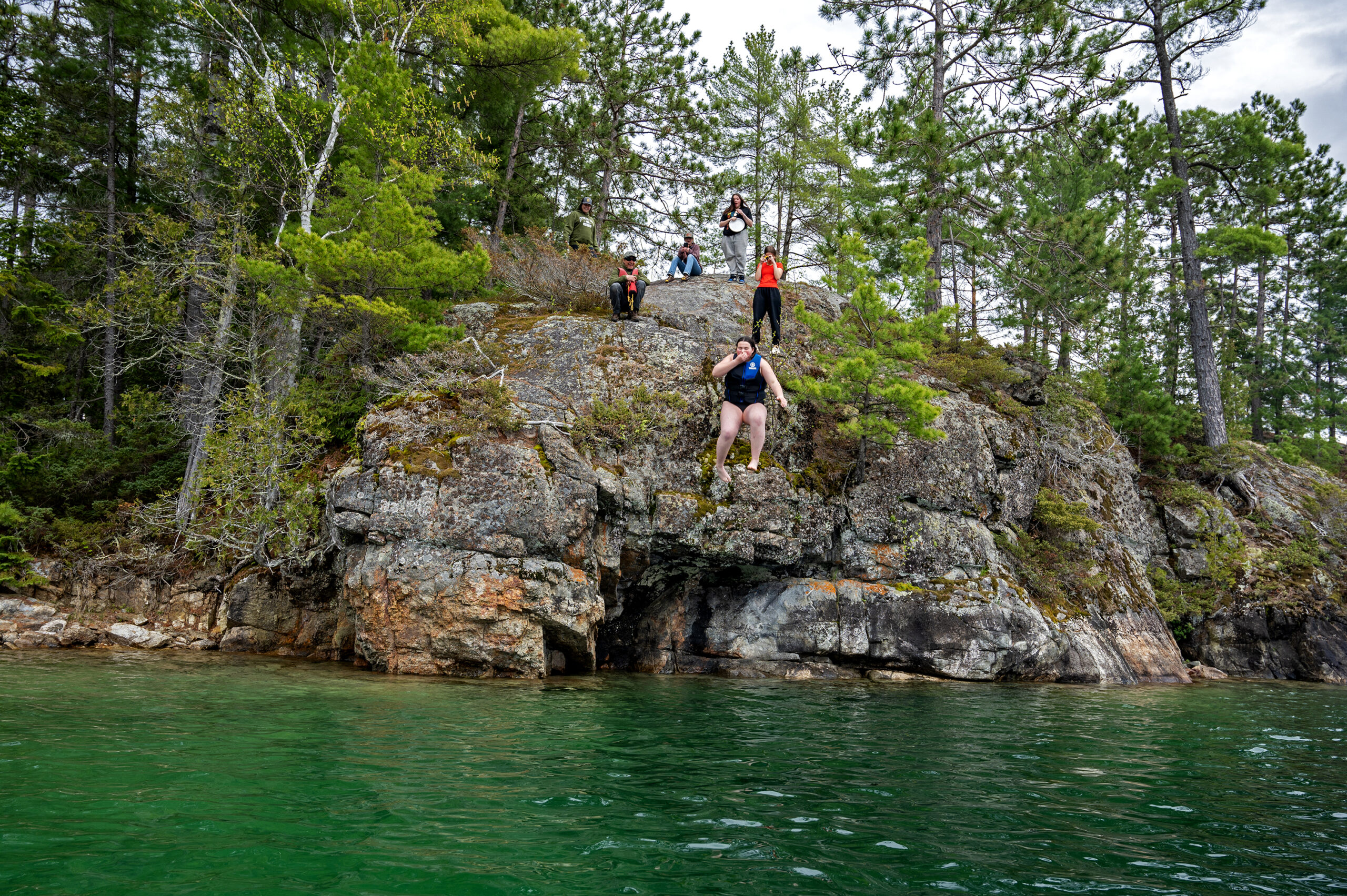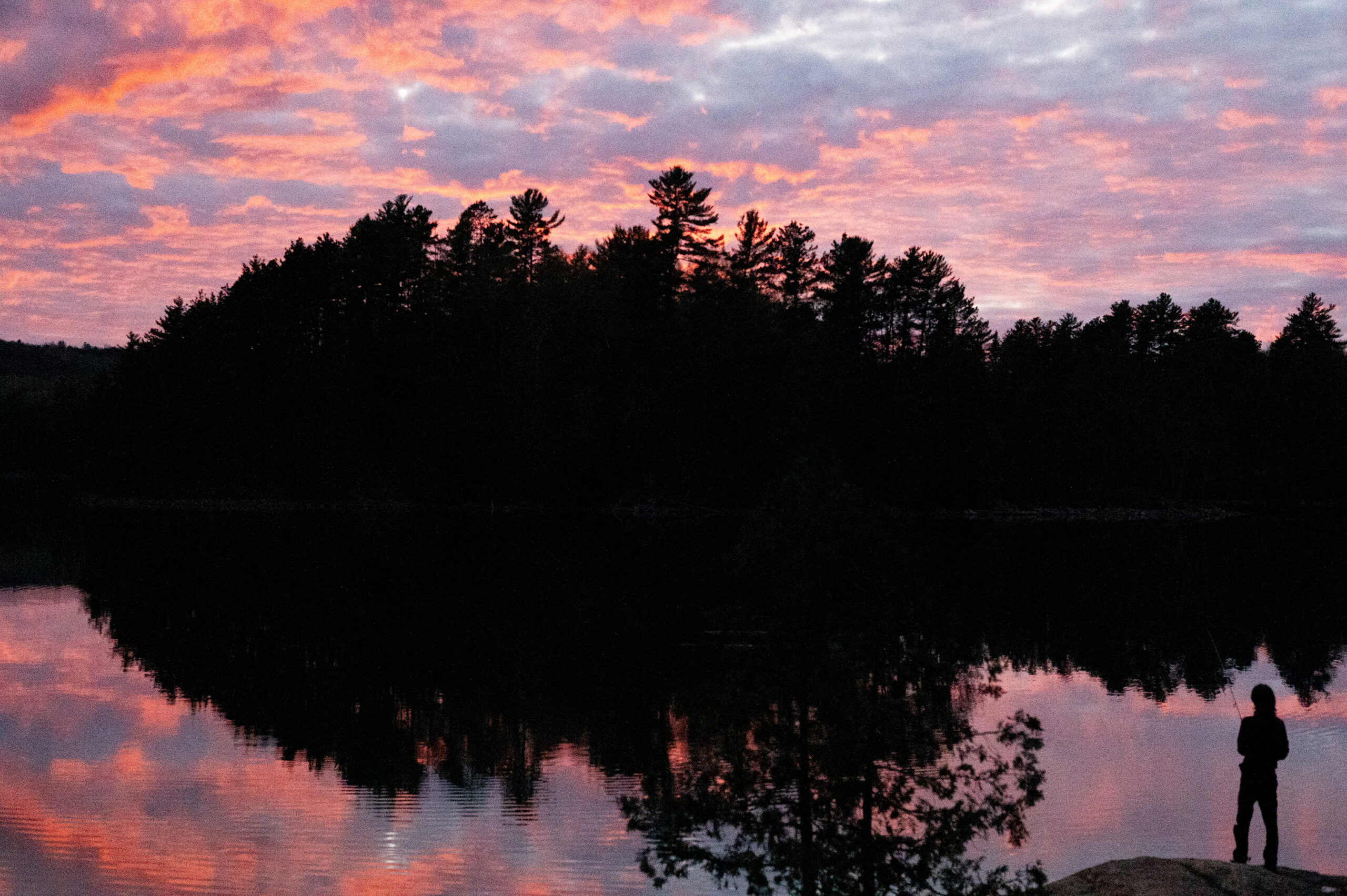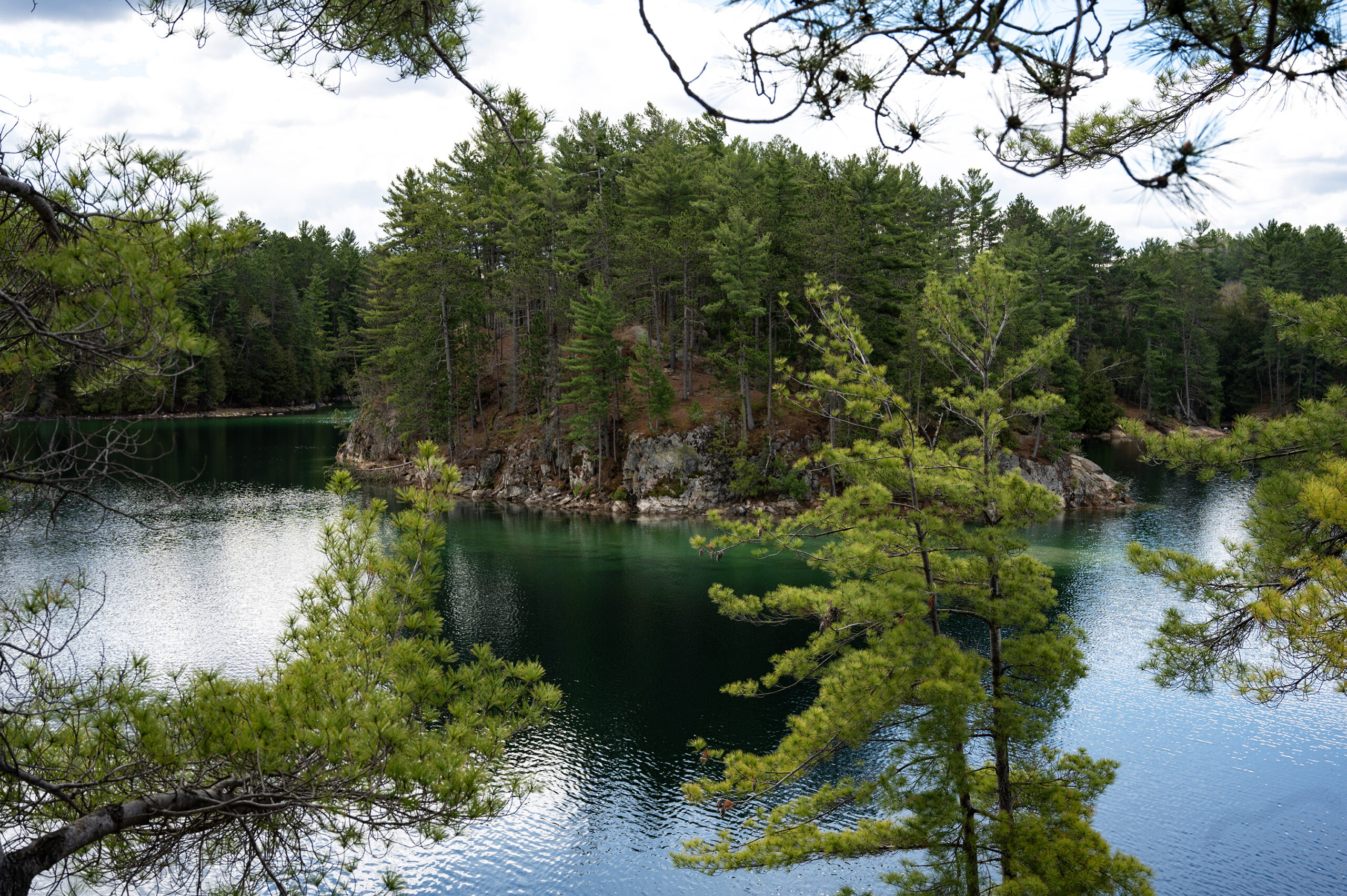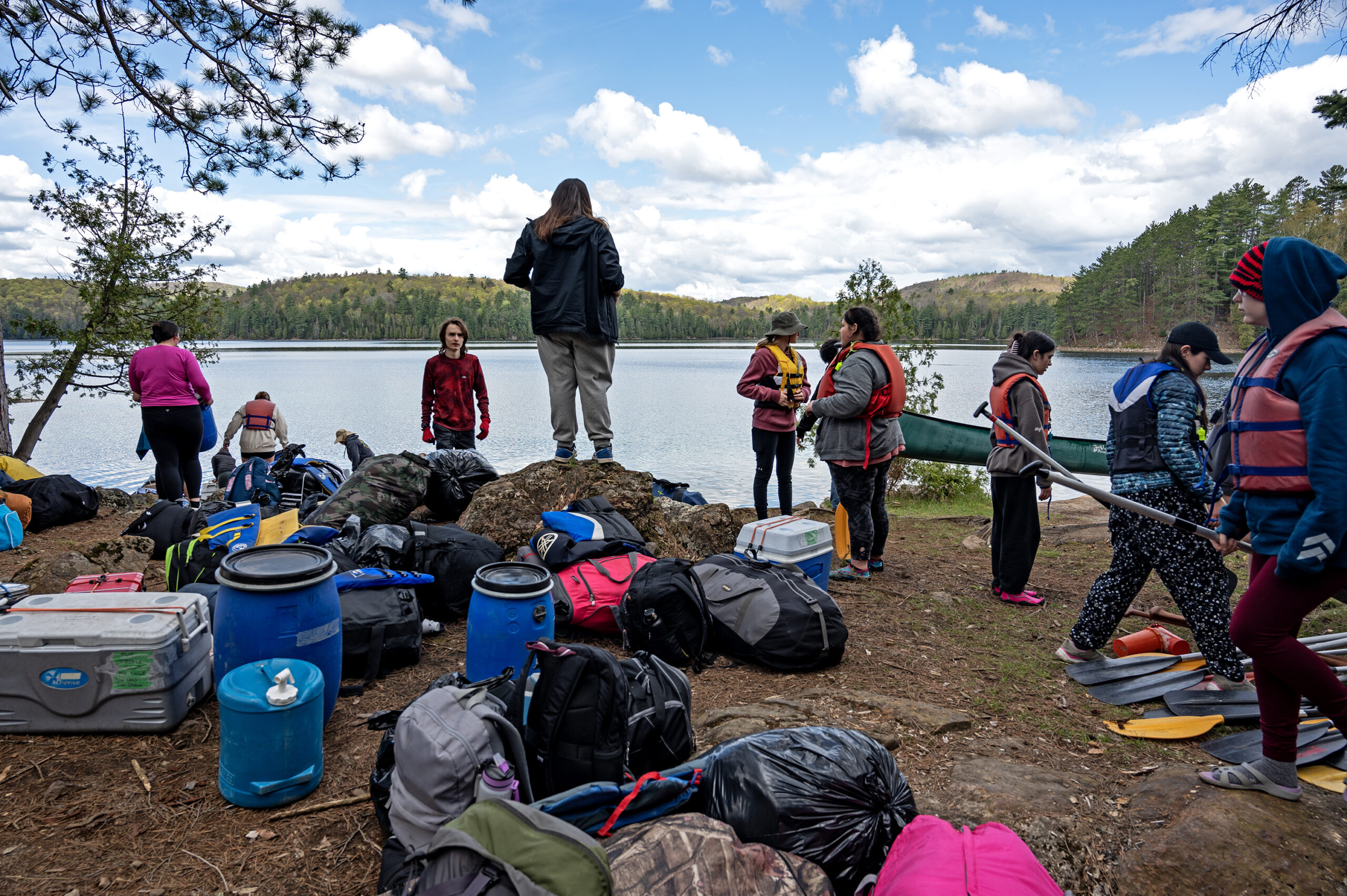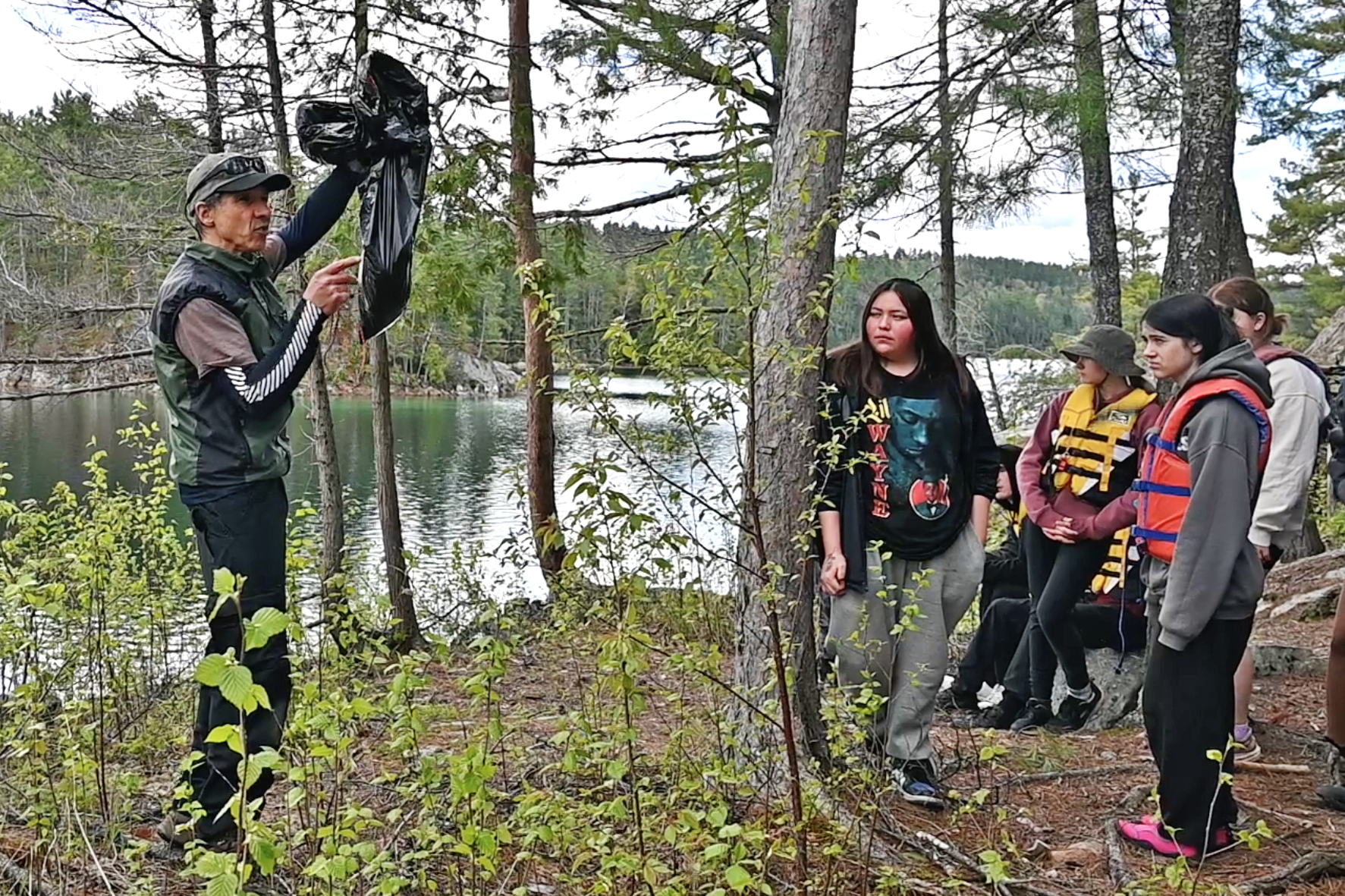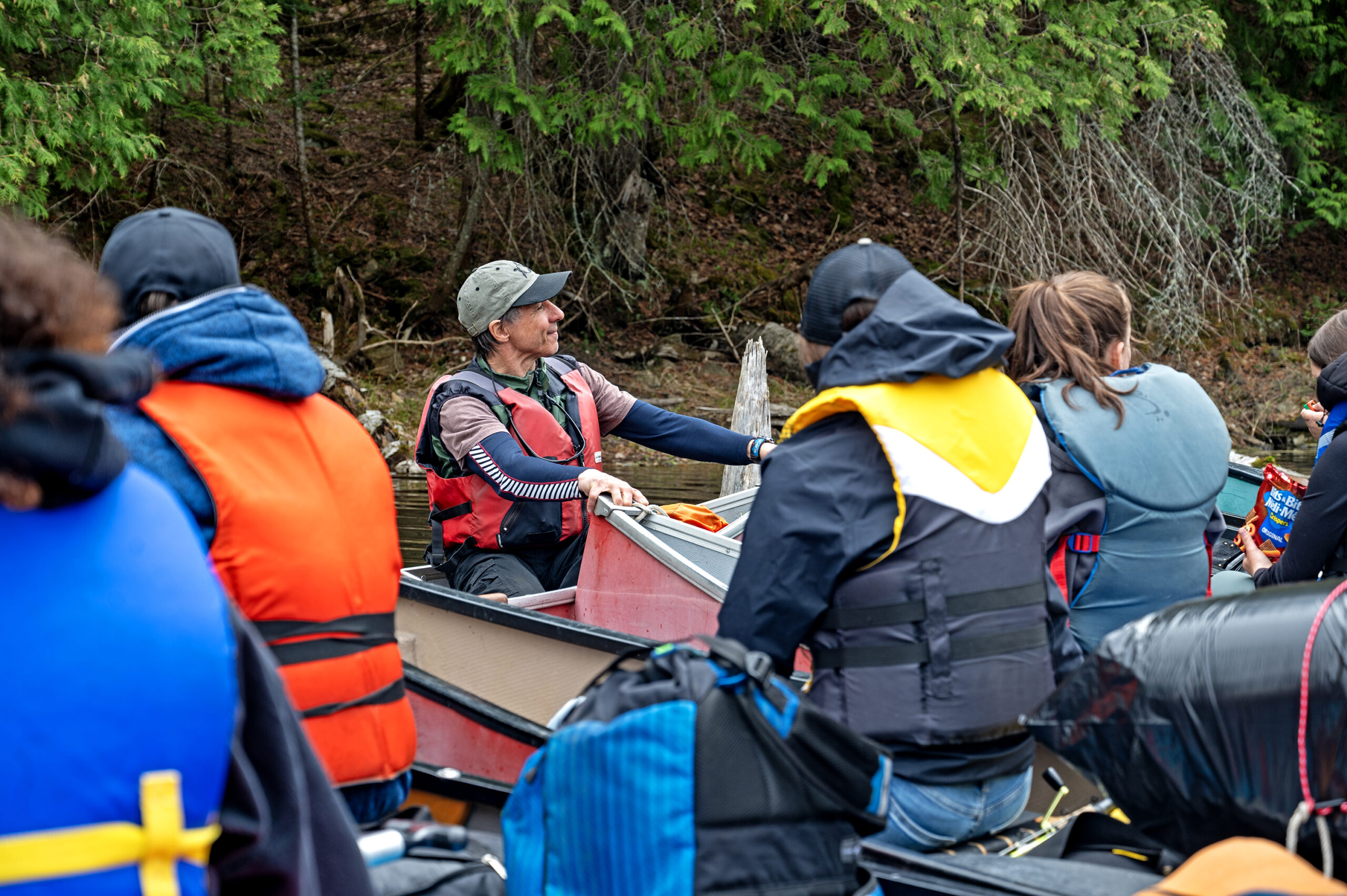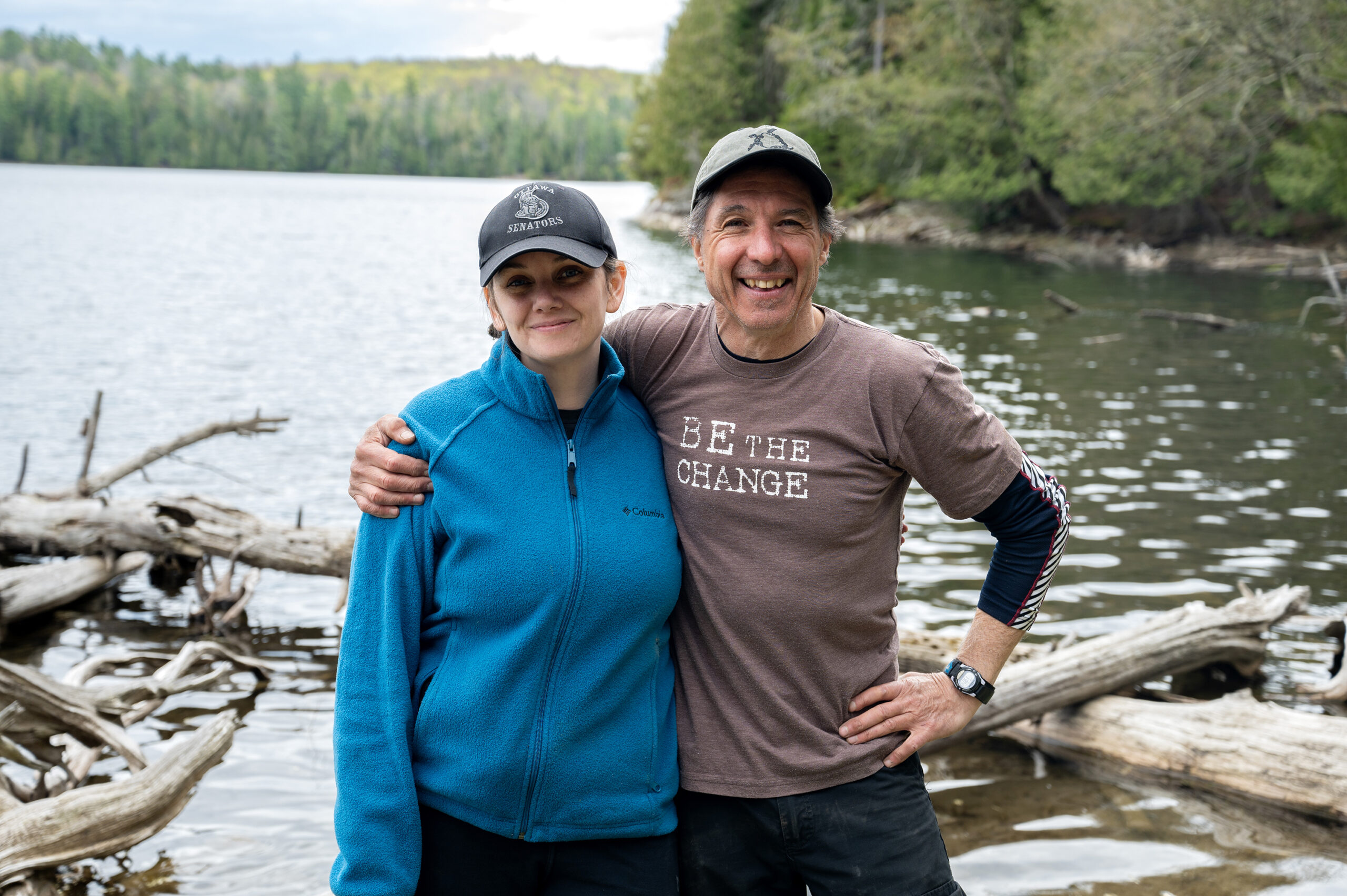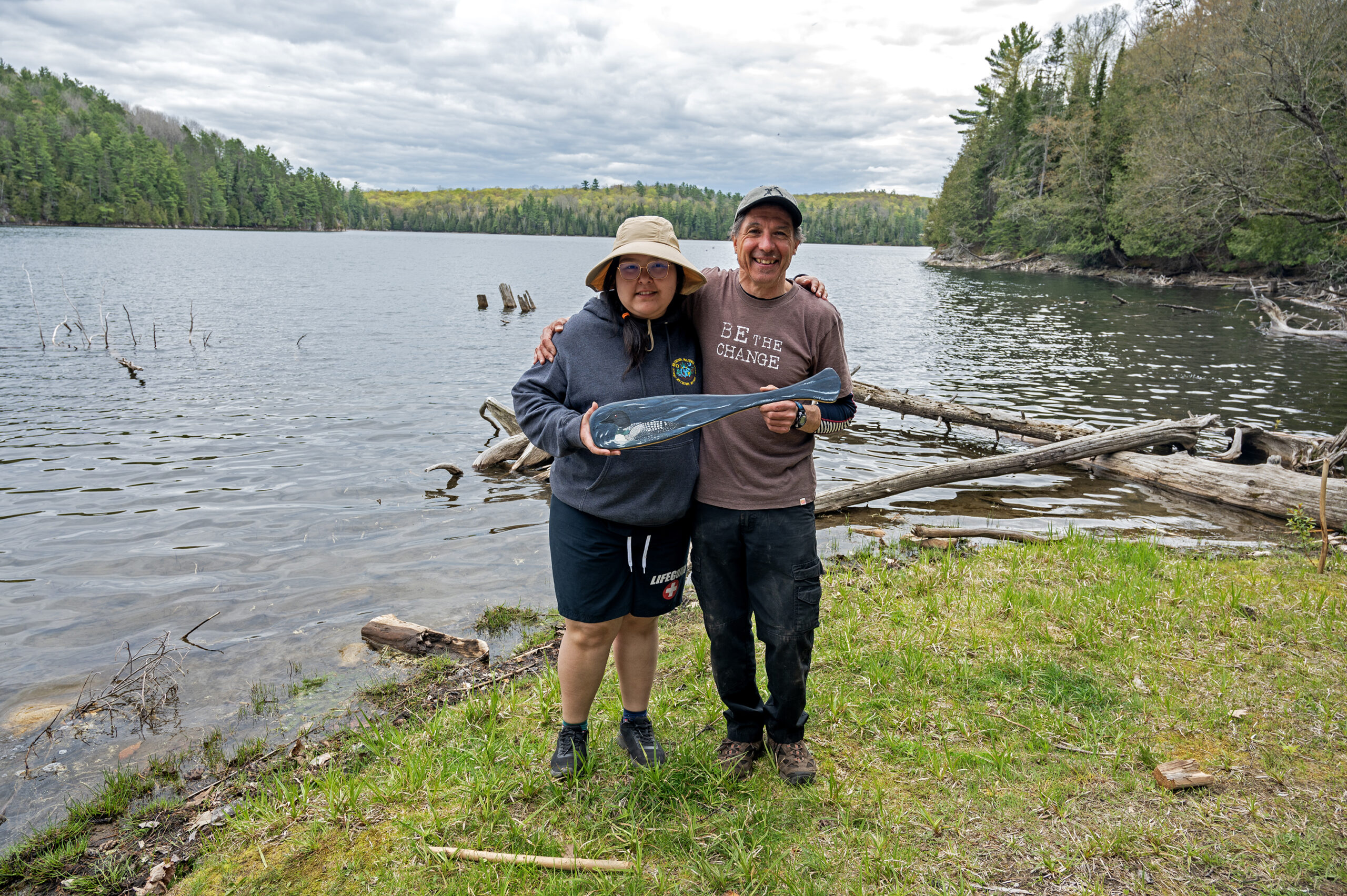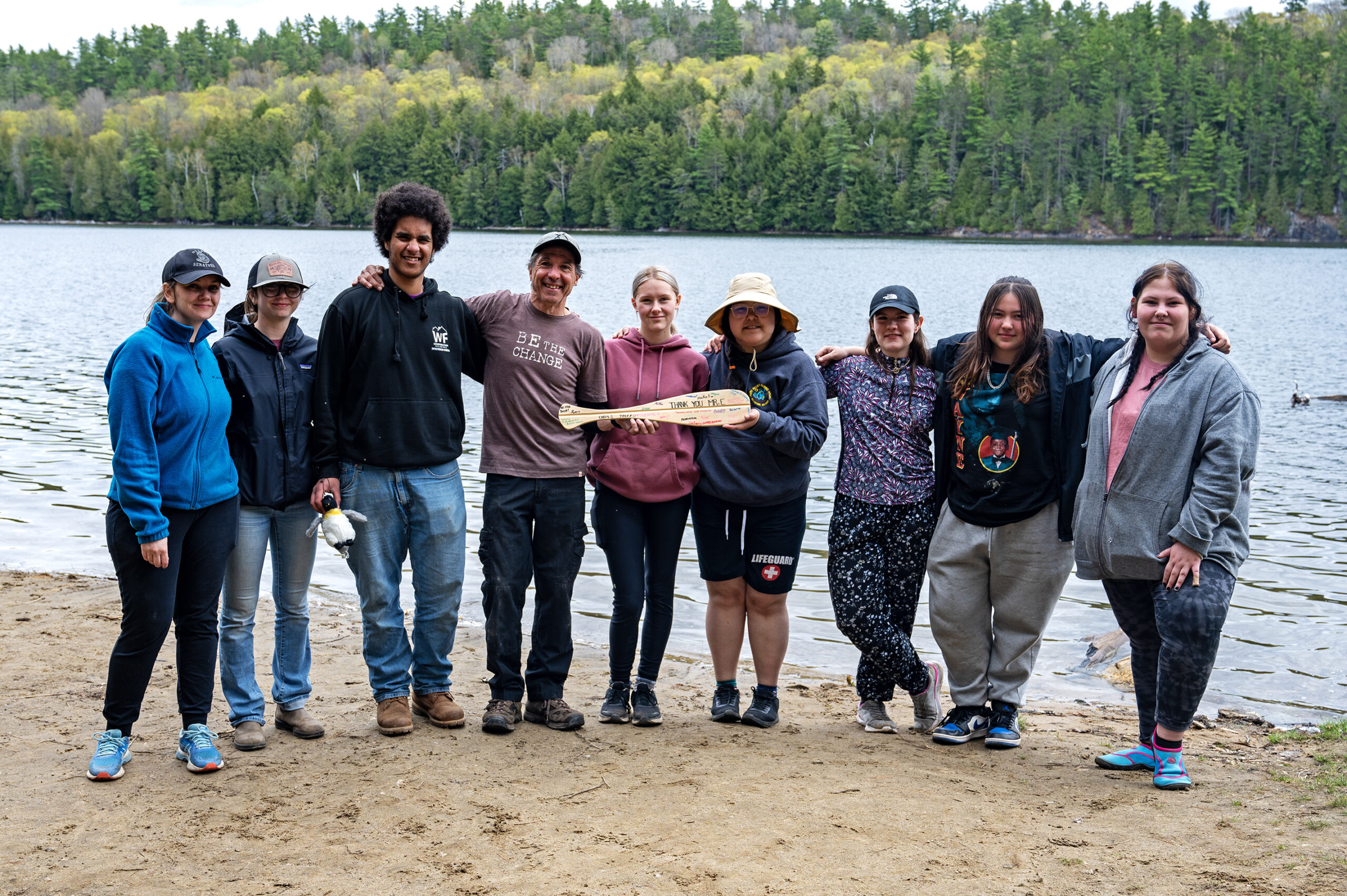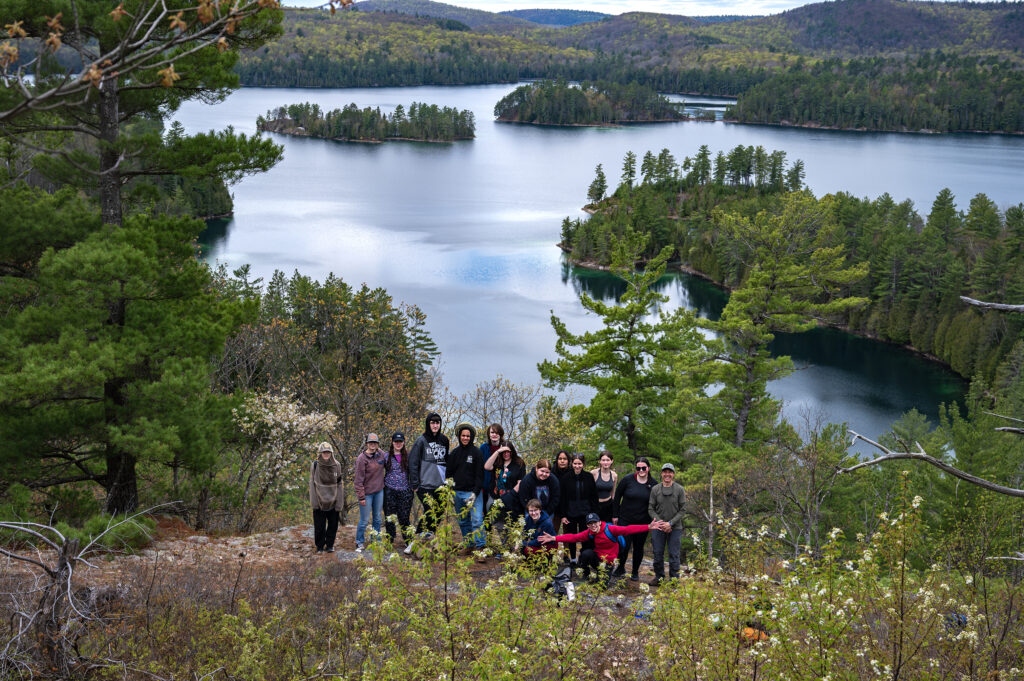
Learning in the natural world is a unique experience, and the lessons, experiences, and memories students make together outside the classroom are lasting. The Western Québec School Board recognizes the immense value of learning outdoors and provides its students with opportunities throughout their education to learn in and from nature.
Alan Earwaker, or ‘Mr. E’, as many call him, has been offering canoe camping trips to schools across the WQSB for over two decades. They are a key element in the Environmental Awareness and Outdoor Life Skills Program which Mr. Earwaker created and proposed to the WQSB in the early 2000’s.
Some of the Maniwaki Woodland students on this trip have been learning from Mr. E’s unique nature programs since Kindergarten, and this excursion marked their last activity with him before both their graduation and his retirement. The immense respect and appreciation the students have cultivated for Mr. Earwaker over the years shines through in his presence, as they cheerfully volunteer their aid, and listen intently to his instructions and lessons.
Planning for a three-day canoe camping trip is a huge undertaking for both Mr. E and for the lead Maniwaki Woodland teacher on the trip, Elise Ahern-Davy, who had been working on the trip’s logistics from the school’s end since Fall 2023. Preparations included meal planning, shopping, and prepping, creating student teams, as well as ensuring students were prepared, communicating with and updating Mr. Earwaker on numbers and supplies needed, finding parent volunteers with 4-wheel drive vehicles to help drive supplies to and from the canoe loading zone, among many other planning considerations. Also present for support was Maniwaki Woodland teacher and the WQSB’s new Indigenous Education Consultant, Drew Wapachee McDougall.
Day 1 was off to a rainy start, but spirits were high. After an initial team meeting, students got to work immediately, helping to unload the canoes, transferring food into proper storage bins, and evenly loading the canoes. The two-hour canoe paddle to the island where they would be setting up camp on the pristine Green Lake went smoothly despite the rain.
Halfway through the wet journey, the group stopped for lunch near a beautiful waterfall. After lunch some students went exploring, and after a student asked what kind of flowers were growing by the stream, Mr. E explained the delicate nature of the Red Trillium, and how it takes seven years to bloom. Learning about nature and the environment happened organically like this throughout the entire canoe camping trip. Alan Earwaker was always happy to share advice when he saw a need, as well as answer the students’ many questions, always involving as many students as possible in the lesson.
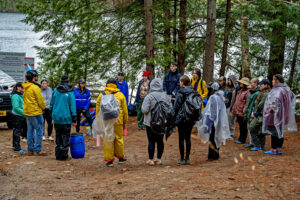
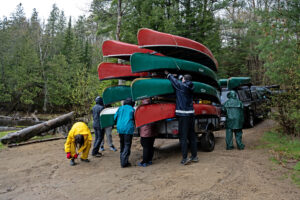
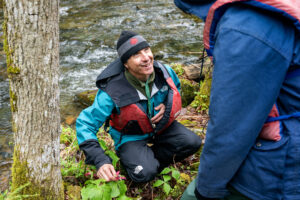
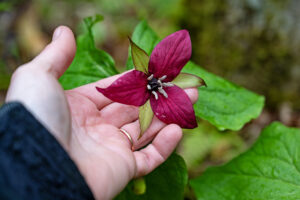
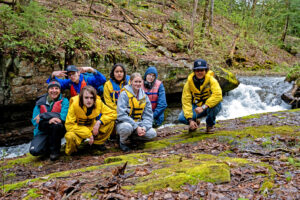
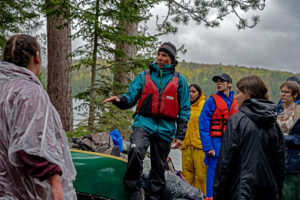
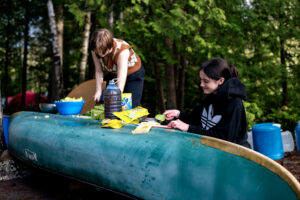
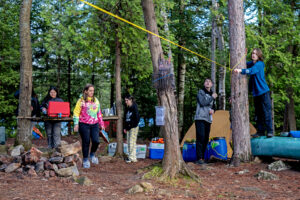
Upon arrival the students and teachers worked together to set up their tents and the main camp. A fire was started, and the rain eventually (thankfully) stopped. Ms. Ahern-Davy proceeded to divide students into their teams for cooking and cleaning duties. For many students, the trip also served as a crash course for how to make a meal! They used two flipped canoes as food prep tables, and Mr. E provided all the cooking and cleaning supplies.
These overnight camping trips create an opportunity for interested students to learn invaluable outdoor life skills, and several of the students fished regularly throughout the trip. Some were learning to fish for the first time, while others had been introduced to the activity on a previous years’ canoe camping trip. A student who happened to be celebrating his birthday caught a giant trout near the end of the first night! Mr. E showed him how to prepare and season the fish, which was smoked, shared and thoroughly enjoyed the next day.
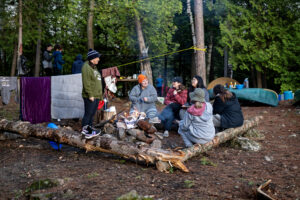
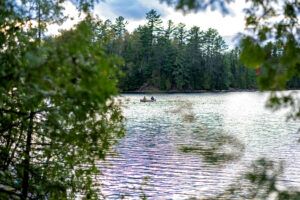
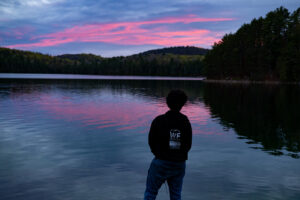
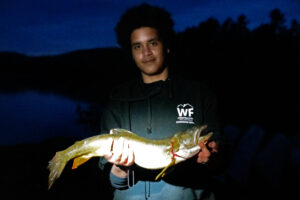
Day 2 was off to a dry and warmer start. After breakfast and lunch prep, the students paddled to the highest mountain in the area and hiked to the top. Students ate their well-earned lunch at the summit, enjoying the stunning view, which included the island on which they were camping.
Upon returning to the island, students had free time to relax, fish, paddle, or swim. After dinner and clean-up, a night paddle was proposed, as the tail-end debris from Halley’s Comet would be at peak visibility. At 9pm about half the students set out with Mr. E, paddling in the dark. The clouds cleared, the stars shone, and tiny bits of Halley’s tail could be seen zipping across the night sky, disappearing in a blip as they burnt up. At two points during the night paddle Alan asked for several minutes of complete silence. Every student honoured this request, and they were able to fully immerse themselves in the active night sounds of the forest, the lake, the stars, the moment.
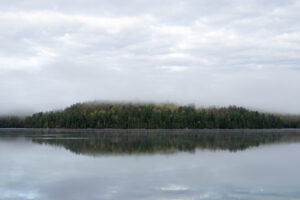
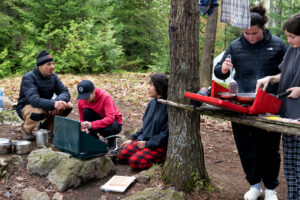
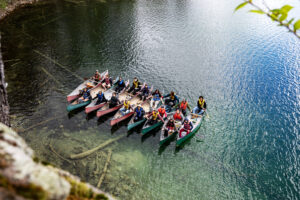
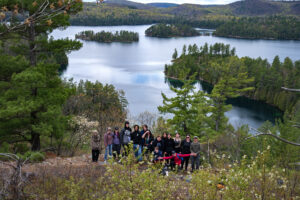
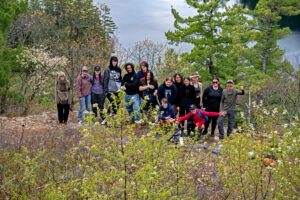
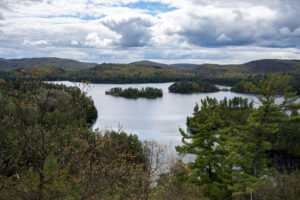
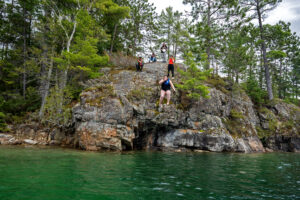
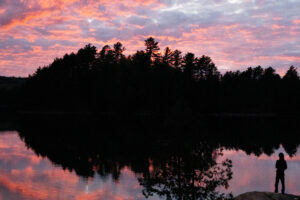
Day 3 was straight-forward, with a team meeting right after breakfast to explain the day’s itinerary. Once all the gear was packed and ready to be loaded, Mr. Earwaker had one more important lesson to share. Holding up a tiny piece of garbage, he asked everyone to collect at least ten pieces of garbage from the ground. He stressed the importance of leaving a campsite better than it was found.
In total the group collected 200 pieces of trash, and Mr. Earwaker explained how this garbage was a danger to the ecosystem, a potential choking hazard to birds, turtles and other animals. While everyone stood on a part of the island that had been recently burnt, he continued explaining the importance of dousing a fire properly, as fire can travel and exist underground. Forested islands are one of the most vulnerable ecosystems, as the topsoil is thin and hard-packed. It takes a long time for trees to grow, and the fewer trees there are on an island, the more vulnerable they are to the elements.
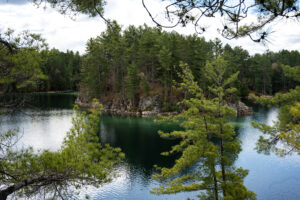
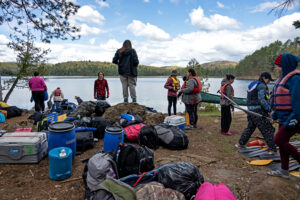
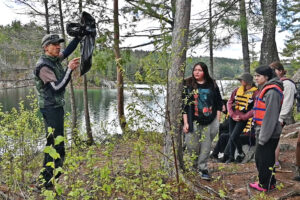
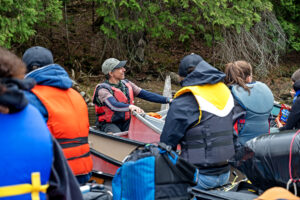
The canoe trip back was fast and smooth. Close to the end of the journey, the group stopped and rafted together for one last meal together. “Rafting” is positioning all canoes side by side and having all paddlers hold on to the canoes on either side. During this time everyone was invited to share one of their favourite parts of the trip. Afterward, Ms. Ahern-Davy presented Mr. Earwaker with a touching gift, a little canoe paddle. On one side all the students and teachers on the trip had signed it, wishing Alan a wonderful retirement. On the other side, a talented student had painted a beautiful loon on the water. The moment was bittersweet, and tears were shed by many. The gratitude for his service as an educator was keenly felt.
Alan Earwaker has enriched the education of thousands of WQSB students over the years, spreading a love and respect for the natural world that students embody and carry into their daily lives. The Western Québec School Board wishes Mr. Earwaker a wonderful new chapter in his life. Thank you for your decades of outstanding service, Mr. E!
